democracynow.org
Stories:

Lawrence Lessig: The Electoral College Is Constitutionally Allowed to Choose Clinton over Trump
As we continue to talk about the U.S. election system, we turn now to Harvard Law professor Lawrence Lessig, who sparked debate over the issue of the Electoral College with his recent op-ed published in The Washington Post titled "The Constitution lets the electoral college choose the winner. They should choose Clinton." Lessig is a Harvard Law professor who briefly ran for the Democratic nomination for president in 2015. He also is the author of "Republic, Lost: How Money Corrupts Congress—and a Plan to Stop It."
TRANSCRIPT
This is a rush transcript. Copy may not be in its final form.
AMY GOODMAN: Well, as we continue to talk about the U.S. election system, we turn now to Harvard Law professor Lawrence Lessig, who sparked debate over the issue of the Electoral College with his recent op-ed published in The Washington Post headlined "The Constitution lets the electoral college choose the winner. They should choose Clinton." Lessig writes, "Electors were to apply, in Hamilton’s words, 'a judicious combination of all the reasons and inducements which were proper to govern their choice'—and then decide. The Constitution says nothing about 'winner take all.' It says nothing to suggest that electors’ freedom should be constrained in any way. Instead, their wisdom—about whether to overrule 'the people' or not—was to be free of political control yet guided by democratic values. They were to be citizens exercising judgment, not cogs turning a wheel," unquote. The electors will meet on December 19th.
Those are the words of Lawrence Lessig, writing in The Washington Post. He’s joining us now, Lawrence Lessig, Harvard Law professor, who briefly ran for the Democratic nomination for president in 2015, also the author of Republic, Lost: How Money Corrupts Congress—and a Plan to Stop It.
Lawrence, thanks so much for joining us from Amsterdam, where you are right now. Well, why don’t you lay out what you’re calling for?
LAWRENCE LESSIG: Well, as I—as you described in summarizing the op-ed, the framers meant for the electors to exercise judgment. And it’s a judgment which is really asking the question: Should we overrule what the people have done? Now, there are some cases where I think they plainly should overrule what the people have done. For example, if a candidate is a crazy person or if it turns out not to be qualified or is a criminal, those would be good reasons to overrule what the people have done. But in this case, there’s no reason for the electors to overrule the popular choice. The popular choice, by more than 2 million votes, is a completely qualified candidate for president. And the principle, that should be a fundamental principle in our democracy, the principle of "one person, one vote," says that the vote of every American should count equally. And if it does, Hillary Clinton should be the president of the United States.
AMY GOODMAN: So, explain the Electoral College. Explain how it works, what electors will be doing on December 19th and what you feel they should do.
LAWRENCE LESSIG: Well, the Electoral College is a group of electors, selected in the states, who will meet in the states on December 19th and cast their ballots for who they believe should be president and who they believe should be vice president. And then those ballots get transmitted to Washington, and then they’re opened in Washington in the Senate, and the results are read. Now, their decision, that they exercise on December 19th, is a decision of judgment. They were to be people who reflected on all the issues presented and have to make a decision. And that decision, I think, should be guided by the principles we should all take as uncontested. And that uncontested principle, that I’ve advanced, the idea that votes should count equally, that everybody’s vote should count equally in the United States, should have an overwhelming influence on their decision. And what they should do, in my view, is to say state laws that tell me I have to vote for the winner, even though the, quote, "loser" might have gotten 48 percent of the vote, shouldn’t constrain me so that I have to go against this fundamental idea of equality. So, I think that they should vote in a way that respects the actual winner in this election and make Hillary Clinton the next president.
AMY GOODMAN: What does it mean for the electors not to vote the way their state did, but the way the nation did? What are the rules?
LAWRENCE LESSIG: Well, first of all, they don’t have to vote the way the nation did necessarily. They could vote the way a significant proportion of their state did. Look, in Michigan, if Donald Trump is found to be the winner by some 10,000 votes out of four-and-a-half million cast, what the Michigan electors could say is, "OK, I’m going to vote in a way that reflects Michigan." So, half of Michigan was essentially for Clinton, half was essentially for Trump—maybe one more for Trump than for Clinton. That division goes against the laws of the state of Michigan that say they have to allocate the electors’ votes to the winner—all the electors’ votes to the winner. But my point is—and this is now increasingly uncontested among constitutional scholars—winner take all does not exist in the Constitution. It’s a restriction imposed on the electors by the states. And if you think that the electors are, as Hamilton described them, people who are supposed to exercise judgment, that restriction is the flaw which ought to be resisted. So they should vote reflecting the votes of the people in their state. And if they did, I think that would be enough to make it so that the winner in January will be Hillary Clinton.
AMY GOODMAN: I interviewed Bernie Sanders on Monday night in Philadelphia, and I asked him about the Electoral College.
SEN. BERNIE SANDERS: No, I think that’s an archaic concept. I think nobody—I mean, nobody voted for the electors; 99.9 percent of the people don’t even know who the electors are. They voted for Hillary Clinton. They voted for Donald Trump. And their obligation is to support the candidate that the people in the state voted for.
AMY GOODMAN: So, he says they got to vote for the way their state went. Lawrence Lessig?
LAWRENCE LESSIG: Yeah, well, I think the archaic idea is actually winner take all, because the principle of "one person, one vote" is a principle that was introduced as a fundamental principle in American law in 1962, long after states had moved to "one person, one vote." And exactly 50 years ago, the state of Delaware went to the Supreme Court, and they said, "Look, winner take all seems to us to be inconsistent with your principle of 'one person, one vote,' so which should stand, and which should fall?" And the Supreme Court ducked that issue. So I think that if you believe in the fundamental principle of equality, we shouldn’t be giving so much deference to an idea of winner take all that was—that was born at the time slavery reigned in the United States. We ought to be respecting the principle of equality. And under the principle of equality, we should get as close to respecting equal votes of every citizen as we can, given our constitutional structure. And I think if we did that, then the will of the people would not be overturned.
It’s only happened twice before. This is the point that people miss. Only twice has the Electoral College voted against a candidate who had won the popular vote—once in 1881, when Grover Cleveland had the election stolen from him by Tammany Hall in New York, and once in 2000, where most people think the election was essentially a tie, and they went with Electoral College. Those two precedents should not be enough to overwhelm the fundamental precedent of equality that ought to define how our democratic system works. And that principle says Hillary Clinton is our president.
AMY GOODMAN: Professor Lessig, your column prompted a number of rebuttals. One was that electors are simply unvetted party loyalists who are ill-equipped to make the independent—to make independent judgments. Your response?
LAWRENCE LESSIG: Well, it’s true we don’t know who they are. But I’m not asking them to make a judgment based on their own preferences. I’m asking them to recognize a principle that should be common to all of us. And that principle is the principle of equality. Now, if it turned out that the candidate was insane or the candidate was a criminal, we’d also be calling on them, these people we don’t know, to make a judgment, as the framers of the Constitution expected they would, not to ratify the choice of the people for that candidate. So, the Electoral College is a project that calls on their judgment. If we don’t like it, we can talk about how to eliminate it. I’m not quite convinced we should eliminate it completely. I think it’s important to have a final check be somebody other than the Supreme Court. But given that it’s there, we should take it seriously. And taking it seriously says they should exercise their judgment according to the moral values, the principles that are part of our constitutional tradition today. And those principles say equality.
AMY GOODMAN: Donald Trump tweeted, albeit in 2012, "The electoral college is a disaster for a democracy."
LAWRENCE LESSIG: Yeah.
AMY GOODMAN: He’s not saying the same thing today, but do you agree?
LAWRENCE LESSIG: Well, I think in this—in the case that he was talking about, he expected that Barack Obama was going to lose the popular vote but win in the Electoral College. And he said it was a disaster for democracy if that would happen. And I agree with him. Absolutely, it’s disaster for democracy. But that’s just one in a long list of things that Donald Trump has said that at one point I agreed with him, and then he changed his view, and now I don’t agree with him anymore. But I think it’s a lot of fun to repeat those, and I just blogged about a bunch of these, where he was saying that we ought to have a revolution if the popular voice—the popular choice is not elected as president. Well, I’d rather just have 37 electors vote for Hillary Clinton than have a revolution. But either way, I think the popular choice in this case ought to be president of the United States.
AMY GOODMAN: Lawrence Lessig, there’s also the concern, since the election was held under the current electoral system, that to change it after the fact would be improper. Your response?

Jill Stein: Recounts are Necessary Because Electronic Voting Invites Tampering, Hacking, Human Error
Former presidential candidate Dr. Jill Stein is continuing her efforts to force recounts in three states: Wisconsin, Pennsylvania and Michigan. But on Tuesday the effort faced a setback as a Wisconsin judge refused to order a statewide hand recount. Instead, the judge ruled that each of the state’s 72 county clerks can decide on their own how to carry out the recount. Donald Trump beat Hillary Clinton in Wisconsin by less than 30,000 votes out of 2.8 million cast. The result was even closer in Michigan, where Trump won by just 12,000 votes. Stein is expected to file paperwork in Michigan by today’s deadline to request a recount there. More than 130,000 people have donated more than $6.5 million Stein’s efforts—that’s nearly double how much Stein raised during her presidential effort. We speak to Jill Stein.
TRANSCRIPT
This is a rush transcript. Copy may not be in its final form.
AMY GOODMAN: Former presidential candidate Dr. Jill Stein is continuing her efforts to force recounts in three states: Wisconsin, Pennsylvania and Michigan. But on Tuesday the effort faced a setback as a Wisconsin judge refused to order a statewide hand recount. Instead, the judge ruled that each of the state’s 72 county clerks can decide on their own how to carry out the recount. Donald Trump beat Hillary Clinton in Wisconsin by less than 30,000 votes out of 2.8 million cast. The result was even closer in Michigan, where Trump won by just 12,000 votes. Dr. Stein is expected to file paperwork in Michigan by today’s deadline, requesting a recount there. More than 130,000 people have donated more than $6.5 million to Stein’s efforts. That’s nearly double how much Stein raised during her presidential effort.
Trump has dismissed the recount efforts. In a statement, he said, "This is a scam by the Green Party for an election that has already been conceded, and the results of this election should be respected instead of being challenged and abused, which is exactly what Jill Stein is doing," he said. However, in another tweet, Trump did claim that millions of people illegally voted in the November 8th election. In a tweet sent out on Sunday, Trump wrote, "In addition to winning the Electoral College in a landslide, I won the popular vote if you deduct the millions of people who voted illegally," unquote. He offered no evidence to back up his claim. While Donald Trump did win the Electoral College, Democratic nominee Hillary Clinton’s lead in the popular vote has now reached well over 2 million and is expected to grow to two-and-a-half million.
To talk more about the recount efforts, we’re joined by former Green Party presidential candidate Jill Stein. She’s joining us from Boston.
Welcome back to Democracy Now!, Jill. Talk about your recount efforts, why you’ve decided to go this route.
DR. JILL STEIN: Right. Thank you, and good to be with you this morning, Amy. You know, coming out of this very divisive and bitter and painful election, you know, confidence of Americans in our voting system, in our election system, our political system—really, across the board, confidence in American institutions is really at rock-bottom low. According to a New York Times poll, 80 percent of Americans—more than 80 percent—said they were disgusted by the election. It’s really important that we be able to improve our election system and our political system as a base, a point of departure, for improving all the other things that are melting down around us—our healthcare system, our jobs, our climate, the endless wars that are making us less secure, and so on. We need to start by verifying our votes and ensuring that this is a democracy that we can work with.
Donald Trump himself said that it was a rigged election, in ways—in ways that he probably didn’t understand. But there was enormous resonance with what he said about it being a rigged election. When Bernie Sanders talked about it being a rigged economy, there was enormous resonance with that. This isn’t something we can just walk away and sweep under the rug. And remember, in this election, most people were voting against the candidate that they liked the least or that they were most afraid of, rather than for their values or for their vision of a better future.
So, I think there’s widespread soul searching and discontent about this election we’ve come out of. And I think it’s a really positive step that people have decided this is where we’re going to start, by ensuring that we can have confidence in the vote count. This is not about attempting to help one candidate or hurt another candidate. This is about helping voters restore confidence that we are properly and securely recording the votes and counting them. And we know that these voting machines are subject to machine error, human error, hacking, tampering, you name it. These machines, when they’re looked into, produce all kinds of problems. And you can’t know unless you look.
AMY GOODMAN: Can you respond to the Wisconsin judge, and what this means, handing it off to the local voting precincts?
DR. JILL STEIN: What the judge said was that hand-counted would be the gold standard and that that was the best way to restore confidence in the vote. But he, I’m told—this is secondhand—what I understand is that he acknowledged that the Wisconsin law didn’t enable him to order that. So he gave it, shall we say, moral authority to do the hand counts, but felt he could not actually order the hand counts. So it will be up to the county clerks and the county election departments, and we’ll be working with them and encouraging them to do the right thing. Now, the good news is, in the state of Michigan, where we’re formally filing today, we’ve already had an informal heads-up that they expect to go forward with a statewide hand count.
AMY GOODMAN: And are you going to be moving forward on Michigan today?
DR. JILL STEIN: Yes, we are. We will be filing, paying the filing fee and moving forward. Another very difficult challenge to the campaign is that the state of Wisconsin raised the cost. It was going to be $1.1 million, and then, the night before last, we learned it’s actually going to be $3.5 million, which I think just underscores that there’s something wrong with this picture, not only that our votes are being recorded on machines that are wide open, an invitation to tampering, to human and machine error, not only that our votes are not being properly safeguarded, but then, in addition, if we want to have reassurance, if we want to verify the vote, we, the citizens, have to raise millions of dollars in order to scrutinize the vote, in order to have assurance. And add to that that there’s, you know, enormous bureaucratic hurdles to doing this.
So, you know, part of our intent here is not only to reassure the American people that we can have confidence in this vote or to find problems if there are problems, as the system is extremely vulnerable to, but we want to move forward and build this movement for verified voting for election integrity, which was really born out of the 2004 recount. For example, in 2004, the city of Toledo, largely the communities of color, filed for a recount because they felt like their votes were not being properly counted and respected. And what they found in that case, when they did a hand recount, was 90,000 votes that had not been counted simply because the voting counting machines, so-called optical scanners, had been miscalibrated. So they were not quite at the proper angle that they could actually see the vote and count the vote. There are innumerable cases where, when we look, we find problems. So it’s really important to look. But it’s also really important for us to change the way that we do this and to get rid of these electronic voting machines, which are an invitation to trouble across the board.
AMY GOODMAN: We’re going to be speaking with Bruce Schneier in a moment about hacking. New York magazine said, in Wisconsin, Hillary Clinton faced 7—"received 7 percent fewer votes in counties that relied on electronic-voting machines compared with counties that used optical scanners and paper ballots."
But I wanted to ask you about a petition posted on the website of Margaret Flowers, the former Maryland Green Party candidate for Senate. The petition is titled "Greens Speak Out on Recount and Our Commitment to an Independent Party." It says, in part, "The decision to pursue a recount was not made in a democratic or a strategic way, nor did it respect the established decision making processes and structures of the Green Party of the United States. ... [T]his recount does not address the disenfranchisement of voters; it recounts votes that were already counted rather than restoring the suffrage of voters who were prevented from voting." The petition was signed by several prominent Green Party members and supporters, including Margaret Flowers, your former adviser Kevin Zeese, former Green Party vice-presidential candidate Rosa Clemente and Pulitzer Prize-winning journalist Chris Hedges. Jill, your running mate, Ajamu Baraka, did not sign the petition but has also come out against the recount. Can you respond to this criticism?
DR. JILL STEIN: Yes. You know, the Green Party has many things to do, and many people are not enthusiastic about verified voting, about election integrity. The Green Party has a broad set of commitments, including continuing the momentum and the grassroots organizing that came out of the campaign. And I’m actually very grateful that many people are continuing to do that and that that is their priority. I, myself, had great ambivalence about moving forward with this.
In 2006, I ran for secretary of state here in my home state, in Massachusetts, so I have a long-standing commitment to voting integrity. And it’s not just counting votes and getting rid of these very problematic voting machines. It’s also ensuring that every—every American has a constitutional right to vote. And Donald Trump said the opposite of what has happened. The problem is not that people were voting illegally, but rather that people were stripped from the voter rolls through—through things like Interstate Crosscheck, also through the use of voter ID. Now, that’s not addressed in this case, but this case is a launching pad for a broader agenda that includes ensuring that we have a democratic right to vote, a constitutional right to vote, ensuring that we have open debates so that voters can actually be informed and empowered to make wise choices. And another priority is to ending fear-based voting through ranked-choice voting, like the state of Maine just passed, which means you can go into the voting booth and rank your choices, knowing that your first choice will be—if it loses, your vote will be reassigned to your second choice. This is part of a critical voting agenda, as well as getting rid of the Electoral College. So there are many things that need to be done. This is a point of departure which actually allows us Greens to lead the way forward on a critical and immediate need.
AMY GOODMAN: So, Dr. Jill Stein, some of the criticism of people even within your own party, though you have the right as a presidential candidate to ask for this on your own, has been that you’re only choosing states—Wisconsin, Pennsylvania, Michigan—where Hillary Clinton lost, not close states where she won. And they’re saying you’re serving the very party that you were so fiercely critical of during the campaign.
DR. JILL STEIN: And I remain fiercely critical of that party. That party should be—
AMY GOODMAN: They are joining you in this, is that right, in supporting your call for recount?
DR. JILL STEIN: Not in any coordinated way. We stepped up to the plate, because they had not. They did not express their support until the deadline had passed for filing in Wisconsin. Our lawyers are communicating so that they do not legally get in each other’s way, but we are otherwise not coordinating. And as I say, I’ve been committed to this issue for many years. So, for me, this is kind of like breathing. It was something that would have been virtually impossible for me not to do. Throughout the campaign, when I was asked whether I would stand up and call for a recount if there was cause to be concerned about the reliability and the credibility of the vote, I always said, yes, I would, and it had nothing to do with who won. And you may recall that Michigan did not actually—was not decided as a Trump state until we had already announced that we would be launching a recount in Michigan. It could have gone to Hillary—to Hillary Clinton.
AMY GOODMAN: And what about—
DR. JILL STEIN: And we would have still challenged it.
AMY GOODMAN: What about those who are saying you’re using this as a fundraising device? You’ve raised almost double—and I also want to ask if this has surprised you—than you raised in your entire campaign for this recount. And that, ultimately, you may use these for local Green Party candidates, what some have criticized—
DR. JILL STEIN: No, no, you can’t do that. Right, no, this is—FEC rules require that a recount be funded by a dedicated recount account, and the money can only be used for that. So, it would be great to have access to that money, but we don’t have access to that money. And since Wisconsin raised the price tag on us, there is no way that there will be residual money. This is all going into the recount.
AMY GOODMAN: On Monday—
DR. JILL STEIN: And it’s funded by small donors. You know, this is a grassroots movement all across America—140,000. Yes, I was absolutely flabbergasted, because we launched this the day before Thanksgiving. Who in their right mind was going to be paying attention to, you know, the call for a recount and fundraising over the Thanksgiving weekend?
AMY GOODMAN: Is it—
DR. JILL STEIN: But that’s exactly what happened, because people are starving for something positive to do to actually begin to take back this promise of democracy.
AMY GOODMAN: Is it all—is it all small donors?
DR. JILL STEIN: Yes, it is, because we are following campaign finance laws, like as if for our campaign. So, the average donation is $45. One-half of 1 percent of donors contributed more than $1,000. And the absolute maximum is the maximum you can contribute to a political campaign, which is $2,700.
AMY GOODMAN: On Monday—
DR. JILL STEIN: So there is no deep account here for deep pockets.
AMY GOODMAN: Monday night, I was at the Free Library in Philadelphia interviewing Vermont Senator Bernie Sanders, and I asked him about your recount effort.
SEN. BERNIE SANDERS: I think what most people expect is not much will happen, but we will see. But it touches on—so, in other words, all that they are doing is what happens all of the time. Nothing new about that. Recounts take place. When I was elected mayor, there was a recount. Right now in North Carolina, the Republican governor, who appears to be losing, wants a recount. Not a new idea. But I’ll tell you what it touches on, why it is touching a nerve, is not because I believe that it’s going to reverse the results. I don’t think that’s the case. But this is what people, especially with all of this barrage of attacks on websites and so forth, are really wondering, whether when they vote, is their vote legitimate? You know, and there’s talk: Have the Russians interfered in this thing? So that’s what it will deal, which takes us to another issue. And I wouldn’t have said this a few years ago, but I will say it tonight. I was just researching this. You know, in Canada, they still do their voting with paper ballots. And maybe it takes an extra hour or two to get the results out to the media, but they manage to survive. And I kind of think we should go back to paper ballots, lock them up. But I think—I think what this suit is about is touching on that issue and trying to see if the results end up being significantly different than what we were announced on election night.
AMY GOODMAN: That’s Bernie Sanders on Monday night. Jill Stein, your response?
DR. JILL STEIN: He’s absolutely right. And this should be built into our election system, that we should not be voting on these very tamper-friendly, error-prone machines in the first place. We should be voting on paper ballots that can be counted by these optical scanners, but they have to be checked with automatic audits. This should be, you know, built-in reassurance that should be part of our voting system. And whenever races are very close, there should be an automatic recount. And when there is suggestions of foul play or irregularities, there should be a recount, like in the Democratic Party primary. Bernie Sanders should have been the beneficiary of a recount and a potential challenge because of the stripping of voter rolls in Brooklyn, the failure to count hundreds of thousands of votes in California, that the Democratic—this is about holding the Democratic Party accountable to the same standard that we’re looking at in three Republican victory states. The reason we’re looking in those states is because you want to look at states that meet the criteria for high potential, high likelihood for having had error. And that means they’re razor-thin margins, the results went the opposite of what was anticipated, and they have some kind of a built-in vulnerability. And it happened that the three most significant states were those three. We didn’t know which way Michigan was going to go, but it turned out to go Republican. But if we have findings, then we have a case to go into many more states, including Democratic states.
AMY GOODMAN: Finally—finally, Jill Stein, are you somewhat disconcerted by not having the full support of the Green Party, and particularly Ajamu Baraka, your vice-presidential candidate, running mate, who said on CNN it’s potentially—the recounts are potentially a dangerous move?
DR. JILL STEIN: You know, the Green Party is a very—you’ve got a lot of opinions, and a lot of people are very well informed and very passionate. And we don’t often do things in the Green Party that we have uniform consensus on. So, I think, as this goes forward, that there will be more room for dialogue. And I think as we begin to see results that actually translate into a more secure voting system, that minds will change. The Greens, you know, are very focused on economic justice, racial justice, climate justice, you name it. And as a—for many Greens, especially newer Greens, electoral integrity has not been a priority. So I think, for many people, it’s a learning experience, and it’s a dialogue. And I think it’s—you know, it’s great that many people are continuing to do the other work, which is very important for us to continue.

Former Law Clerk: Antonin Scalia Is Turning in Grave over Trump's Threat to Jail Flag Burners
Donald Trump also sparked controversy on Tuesday when he made two unconstitutional proposals in a single tweet, writing, "Nobody should be allowed to burn the American flag–if they do, there must be consequences–perhaps loss of citizenship or year in jail!" The Supreme Court has ruled twice that flag burning is protected under the First Amendment. The Supreme Court has also ruled it’s unconstitutional to strip people of citizenship for most crimes, including desertion. We speak to Harvard Law professor Lawrence Lessig, who once clerked for Antonin Scalia.
TRANSCRIPT
This is a rush transcript. Copy may not be in its final form.
AMY GOODMAN: Finally, Professor Lessig, you’re a Harvard Law professor, and I want to ask you about a totally different issue. Donald Trump sparked controversy Tuesday when he made two unconstitutional proposals in a single tweet. He tweeted, "Nobody should be allowed to burn the American flag–if they do, there must be consequences–perhaps loss of citizenship or year in jail!" Now, the Supreme Court has ruled twice that flag burning is protected under the First Amendment. The Supreme Court has also ruled it’s unconstitutional to strip people of citizenship for most crimes, including desertion. Supreme Court Justice Earl Warren wrote in 1958, "The deprivation of citizenship is not a weapon that the Government may use to express its displeasure at a citizen’s conduct, however reprehensible that conduct may be." What are your thoughts, Professor Lessig?
LAWRENCE LESSIG: Well, I think that this—this potentially loophole president is becoming more and more like Vladimir Putin every day, because those are exactly the rules in Russia. You can be thrown in jail, you can lose your citizenship in Russia, certainly. But it’s absolutely unconstitutional to imagine either of those two penalties for exercising free speech. And my former boss, Justice Scalia, for whom I clerked, would be turning in his grave now to imagine a Republican president for—a candidate for president or a president-elect talking about doing something like throwing somebody in jail for flag burning. He joined the flag-burning opinion, which said flag burning was a protected First Amendment expressive activity.

Cybersecurity Expert Bruce Schneier: American Elections Will Be Hacked
"American Elections Will Be Hacked.’" That’s the title of a recent article in The New York Times by our next guest, the leading cybersecurity and privacy researcher Bruce Schneier. Schneier warns, "Our newly computerized voting systems are vulnerable to attack by both individual hackers and government-sponsored cyberwarriors. It is only a matter of time before such an attack happens." Schneier is a security technologist and fellow at Harvard’s Berkman Center for Internet and Society and author of the book "Data and Goliath: The Hidden Battles to Collect Your Data and Control Your World."
TRANSCRIPT
This is a rush transcript. Copy may not be in its final form.
AMY GOODMAN: This is Democracy Now!, democracynow.org, The War and Peace Report. I’m Amy Goodman. "American Elections Will Be Hacked." That’s the title of a recent op-ed in The New York Times by our next guest, the leading cybersecurity and privacy researcher Bruce Schneier. He warns, quote, "our newly computerized voting systems are vulnerable to attack by both individual hackers and government-sponsored cyberwarriors. It is only a matter of time before such an attack happens." Bruce Schneier is a security technologist, fellow at Harvard’s Berkman Center for Internet and Society, author of the book Data and Goliath: The Hidden Battles to Collect Your Data and Control Your World.
Bruce, welcome back to Democracy Now! Talk about your concerns today in this aftermath of the 2016 election.
BRUCE SCHNEIER: A lot of our voting machines are basically computers. And especially computers without any paper audit trail are vulnerable to hacking and errors in ways that can’t be corrected. And my worry is that we’re going to have an election where there is credible evidence of a hack, and we’re literally not going to know the actual results and have no way to figure it out. And that, right now, will be disaster for our system.
AMY GOODMAN: So you said your concern is "we’re going to have an election." Do you think we had one?
BRUCE SCHNEIER: My guess is no. It’s sort of interesting to watch these three states. There’s research that shows there are statistical—
AMY GOODMAN: You mean Pennsylvania, Wisconsin and Michigan?
BRUCE SCHNEIER: Yeah, those three states. So there are anomalies in the results that seem to correlate with voting machine type. Now, that is a red flag for hacking and something we should look at, and we should definitely research this. My guess is it isn’t. My guess is there’s some confounding variable that the machine type is correlated to demographic in some way. But we don’t actually know until we do the research. My worry right now is the recount. That process was designed decades ago, when it meant counting the ballots slower and more carefully. And it didn’t mean looking at the voting machines for forensic evidence of hacking. So I’m not convinced that even after this recount we’re going to know more.
AMY GOODMAN: I want to turn to comments by Alex Halderman, director of University of Michigan Center for Computer Security and Society and one of the leading computer scientists and election lawyers calling for a recount. He indicated a hack of the vote was, quote, "plausible," but went on to emphasize, quote, "The only way to know whether a cyberattack changed the result is to closely examine the available physical evidence—paper ballots and voting equipment in critical states like Wisconsin, Michigan, and Pennsylvania." Your thoughts?
BRUCE SCHNEIER: So, he’s 100 percent correct. That’s the only way to know. And when there are paper ballots, if it’s an optical scan machine, where you vote on paper, and that paper ballot is your backup, you can look at that paper. And that will give you the actual vote. In states that don’t have that, that are just touchscreen machines like ATM machines, there’s going to be really no way to figure out original voter intent. There, the only thing you can do is forensically analyze the machines, the network. And while that may lead to evidence of hacking, it won’t tell you what the original votes are. Now, that process can take weeks. It can take months. It’s not a process we’re really ready for. We expect to know the winner now.
AMY GOODMAN: In Wisconsin, Clinton received 7 percent fewer votes in counties that relied on electronic voting machines compared with counties that used optical scanners and paper ballots. That was a piece in New York magazine. Your thoughts?
BRUCE SCHNEIER: So that’s exactly correct. So that is the red flag that could indicate hacking. It could indicate other things, too. There was a complex post on FiveThirtyEight.com that looked at that data and had a theory that it was demographics that was the deciding factor, and not hacking. That could be true, too. So, we have a problem right here. Right? Elections serve two purposes. The first is to choose the winner, but the second is to convince the loser. The losing side has to believe the election is fair; otherwise, it’s not legitimate. Things like this delegitimatize the election. And that’s why we need to investigate them and come up with the actual answer. And if there was hacking, we need to know about it. If there wasn’t, we need to know about it. And—
AMY GOODMAN: I want to turn—
BRUCE SCHNEIER: —Stein made a really important point. There needs to be rules in place beforehand, because now, when the election is over, battle lines are drawn. It’s Trump versus Clinton. And you’re going to pick the process that will have your side win. Rewind this a month, and it would be really easy to come up with a set of rules that everyone agrees on. So we need those rules in place before we vote, when we don’t know which way the hacking or the demographics or the miscount might go.
AMY GOODMAN: I want to turn to a report produced by Rolling Stone investigative reporter Greg Palast. He was in Ohio just before the election. Palast spoke to election law attorney Bob Fitrakis about problems with the voting machines. We hear first from Fitrakis.
ROBERT FITRAKIS: Well, machines now can actually take a ballot image, in the sequence of every single one cast, to eliminate fraud if somebody tampers with the paper ballots.
GREG PALAST: There’s only one problem.
ROBERT FITRAKIS: They’ve decided to turn off the security.
GREG PALAST: Election law attorney Robert Fitrakis represents Republicans and Democrats. He just discovered that the photo image and audit protection functions have literally been shut off.
ROBERT FITRAKIS: So they bought state-of-the-art equipment and turned off the security.
AMY GOODMAN: So that’s Bob Fitrakis in Greg Palast’s piece. Bruce Schneier, your response?
BRUCE SCHNEIER: So it’s hard to know how bad that is. If they’re photographing the paper and the paper still exists, then we’re OK, if the photograph is just a backup of the paper. If the paper is destroyed, then that’s an absolute disaster. So, not knowing more, I can’t tell. But something else is brought up in this that’s real important, that we can’t lose sight of, I think, the real issue here, which is not the hacking in those three states, but the voter suppression everywhere. And whether it is voter ID requirements or closing polling places in poor neighborhoods or reducing early voting or purging voter rolls, there’s a concerted effort in the United States to deny people the right to vote. I think that’s the real issue. And that has probably caused a lot more discrepancy in the vote versus the will of the people than machines, even though machines can be a disaster.
AMY GOODMAN: I want to turn to Michael Isikoff. We spoke to him, chief investigative reporter for Yahoo News, looking at reports that hackers outside the U.S. infiltrated two state election databases. This is what he had to say about vulnerabilities in the voting infrastructure here.
MICHAEL ISIKOFF: In 40 states, we have optical scan voting, in which there are backup of paper ballots, so there’s a safety net there. But there are points of vulnerability. In six states and parts of four others, including Pennsylvania, a crucial swing state, there are electronic voting machines, that are vulnerable, that could be tampered with. There’s internet voting for overseas ballots and military ballots in 33 states, so that’s another point of vulnerability.
AMY GOODMAN: That’s Michael Isikoff. Bruce Schneier?
BRUCE SCHNEIER: Well, he’s exactly correct. There’s really three areas of vulnerability we have to worry about. The first is the voting rolls. If someone can hack those rolls and change them or delete them, they could cause real problems on Election Day. The second is the machines. And, yes, optical scan machines are the most secure and the safest. And that’s a paper ballot that you fill in ovals, and it’s processed, and the paper is your backup. The third area of vulnerability is the tabulation and the counting. And we don’t talk about that much, but after everyone votes, there’s a system of consolidating all of those results from every machine higher and higher into a single state result. And there’s vulnerability there. So, yes, those three areas are all rife for hacking, not just from foreign powers, but from hackers everywhere. I mean, these aren’t things that are only the purview of nation states. Our computer systems are so vulnerable that even amateurs can, in some cases, do it.
AMY GOODMAN: Bruce Schneier, we want to thank for being with us, security technologist, fellow at Harvard’s Berkman Center for Internet and Society. We’ll link to your piece in The New York Times that’s headlined "American Elections Will Be Hacked." He’s also author of Data and Goliath: The Hidden Battles to Collect Your Data and Control Your World.
That does it for our broadcast. And we hope, if you’re in the area, you will join us Monday, December 5th, at Riverside Church in New York City for our 20th anniversary celebration, featuring Harry Belafonte, Noam Chomsky, Patti Smith, Danny DeVito, Danny Glover, Tom Morello, Juan González and many more. You can visit democracynow.org for details.
Headlines:
Trump Picks Billionaire Steven Mnuchin, Operator of "Foreclosure Machine," for Treasury Secretary
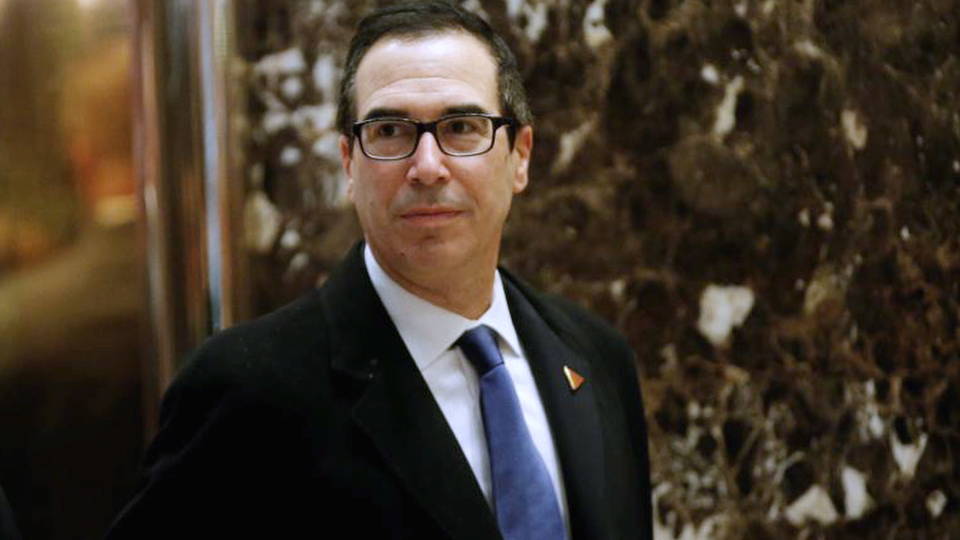
President-elect Donald Trump has announced a handful of new Cabinet picks. On Tuesday, he named billionaire Steven Mnuchin to be treasury secretary. Mnuchin has deep ties on Wall Street, including working as a partner for Goldman Sachs, where his father also worked. Mnuchin’s hedge fund also played a role in the housing crisis, after it scooped up the failing California bank IndyMac in 2008. Under Mnuchin’s ownership, IndyMac foreclosed on 36,000 families, particularly elderly residents trapped in reverse mortgages. Mnuchin was accused of running a "foreclosure machine." The bank, which was renamed OneWest, was also accused of racially discriminatory lending practices. In 2015, Mnuchin sold the bank for $3.4 billion—$1.8 billion more than he bought it for.
TOPICS:
Trump Picks Billionaire Wilbur Ross for Commerce Secretary
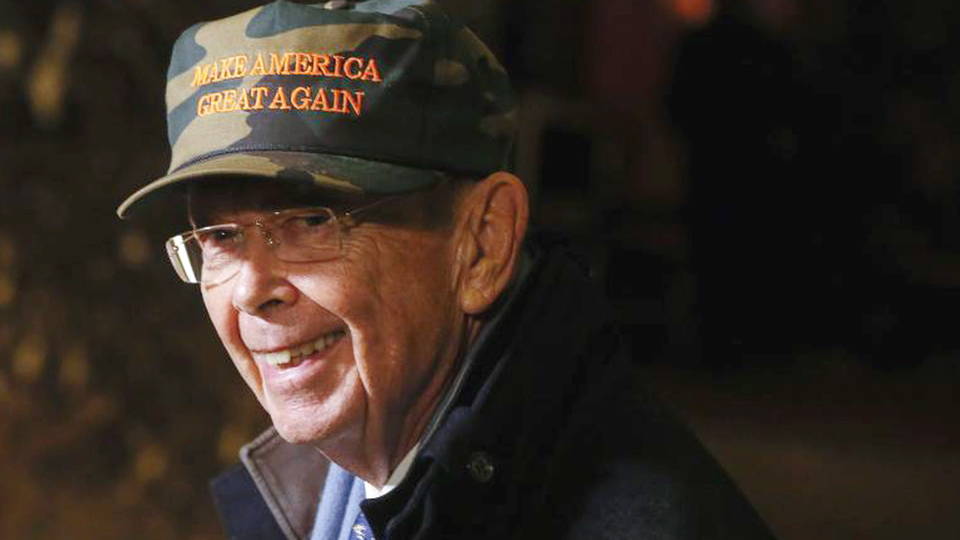
Trump has also reportedly picked billionaire private equity investor Wilbur Ross to be commerce secretary. Ross specializes in flipping bankrupt companies for profit, often buying the U.S. companies at low prices and then selling them to overseas investors. He and his companies have sometimes shipped jobs and factories overseas—practices Donald Trump has railed against.
TOPICS:
Trump Picks Elaine Chao for Transportation Secretary
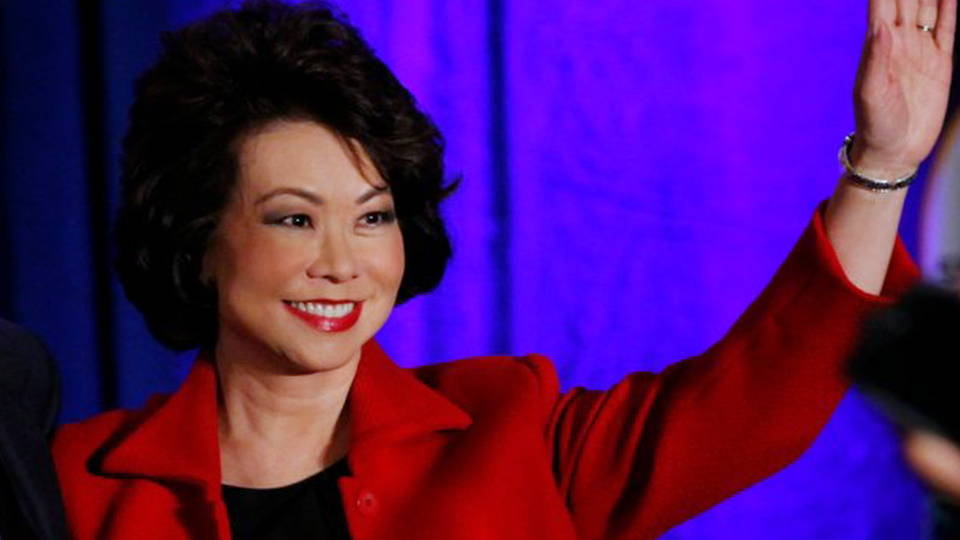
Meanwhile, Donald Trump has picked George W. Bush’s former labor secretary, Elaine Chao, to be transportation secretary. Chao is the wife of Senate Majority Leader Mitch McConnell of Kentucky and immigrated to the U.S. from Taiwan when she was eight years old. She’s been a fixture in Washington, D.C., for more than 20 years. Trump also named Seema Verma to be administrator of the Centers for Medicare and Medicaid Services. Verma has worked closely with Vice President-elect Mike Pence, and her health policy firm helped design Indiana’s Medicaid expansion under the Affordable Care Act. Trump has still not announced his pick for secretary of state, although he did dine with former Republican presidential nominee Mitt Romney Tuesday night in New York City. Other possible candidates for secretary of state include former New York City Mayor Rudolph Giuliani, retired General David Petraeus and former United States Ambassador to the United Nations John Bolton.
TOPICS:
Trump Proposes Doubly Unconstitutional Punishment for Flag Burning
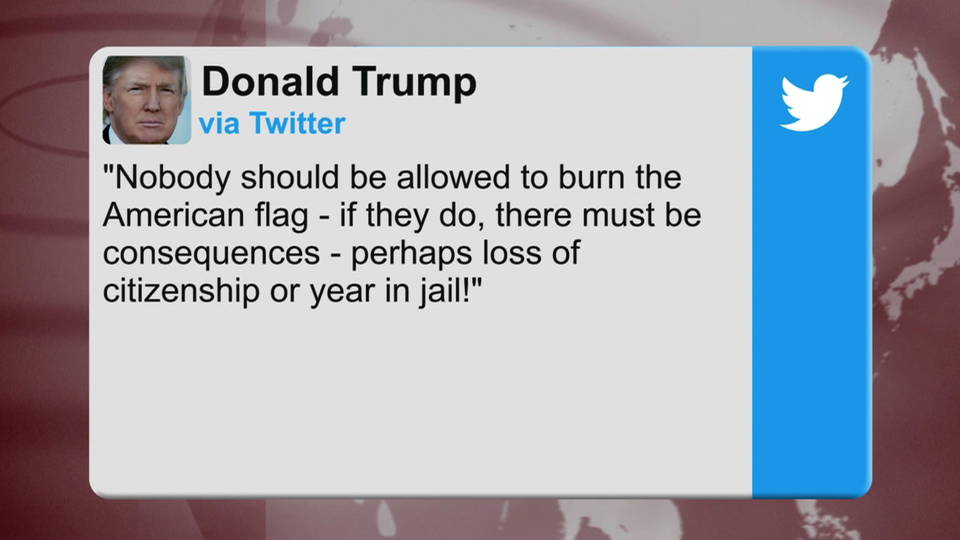
Donald Trump also sparked controversy on Tuesday when he made two unconstitutional proposals in a single tweet, writing, "Nobody should be allowed to burn the American flag–if they do, there must be consequences–perhaps loss of citizenship or year in jail!" The Supreme Court has ruled twice that flag burning is protected under the First Amendment. The Supreme Court has also ruled it’s unconstitutional to strip people of citizenship for most crimes, including desertion. In a 1958 ruling, Supreme Court Justice Earl Warren wrote, "The deprivation of citizenship is not a weapon that the Government may use to express its displeasure at a citizen’s conduct, however reprehensible that conduct may be."
TOPICS:
Protests in 340 Cities Demand $15-an-Hour Minimum Wage
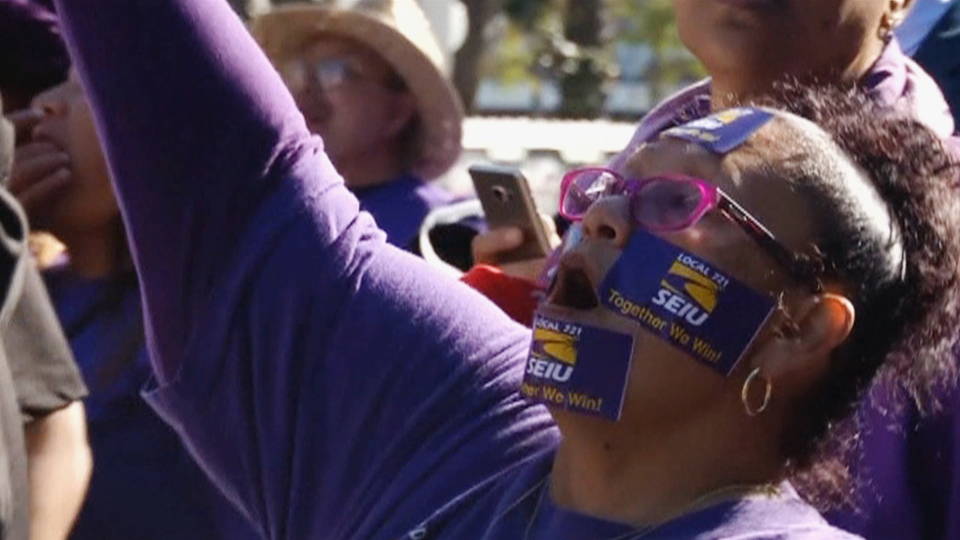
Thousands of fast-food workers, home care and child care providers, janitors, airport workers and Uber drivers rallied in 340 cities across the United States Tuesday for a national day of action to demand a minimum wage of $15 a hour. In New York City, about two dozen people were arrested. This is Héctor Figueroa, president of 32BJ Service Employees International Union.
Héctor Figueroa: "After the outcome of this last election, it’s even more important that we raise our voices and we fight for our rights. It was economic. It was the rising income inequality that is striking hard on workers, that led to a very, very complicated election. And unless we address this problem, we are going to see our country suffer. So we’re here to say the time to give workers a raise is now, the time to win a union in the workplace is now, and we’re not going to stop until we win 15 and a union."
Journalist & Activist Barrett Brown Released from Prison
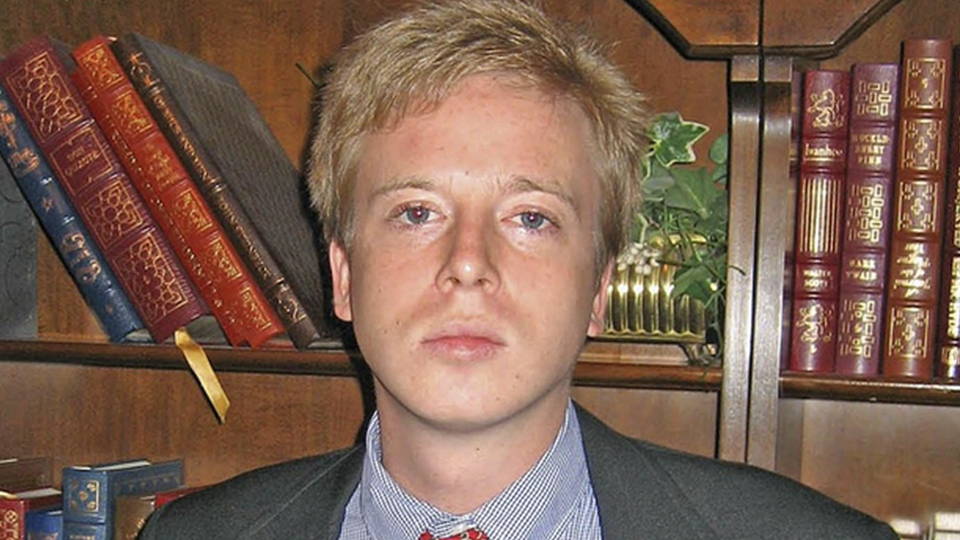
In Texas, journalist and activist Barrett Brown has been released from federal prison after spending four years behind bars on charges related to the hacking of the private intelligence firm Stratfor, which exposed how the firm spied on activists on behalf of corporations. In 2014, he pleaded guilty to charges of transmitting threats, accessory to a cyber-attack and obstruction of justice. Supporters say Brown has been unfairly targeted for investigating the highly secretive world of private intelligence and military contractors. At one point, Brown faced 100 years in prison before pleading guilty to lesser charges. Earlier this year, Brown won the National Magazine Award for prison columns, for a series of columns he wrote for The Intercept.
TOPICS:
Kashmir: Independence Rebels Attack Indian Army Base, Killing 7
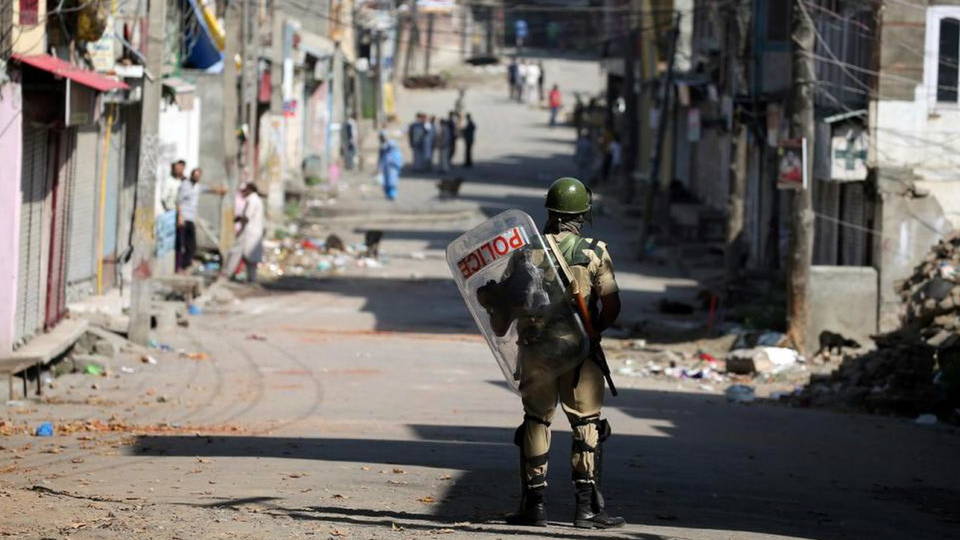
In Kashmir, Indian officials say independence rebels attacked an Indian Army base Tuesday, killing at least seven Indian soldiers. Officials say at least three Kashmiri rebels were killed during the attack. The disputed territory has been rocked by protests since July, when Indian security forces killed a prominent Kashmiri independence leader. At least 80 Kashmiris have been killed by Indian security forces during the ongoing protests.
Brazil: 10,000 Protest Austerity as Senate Approves Cap on Federal Spending
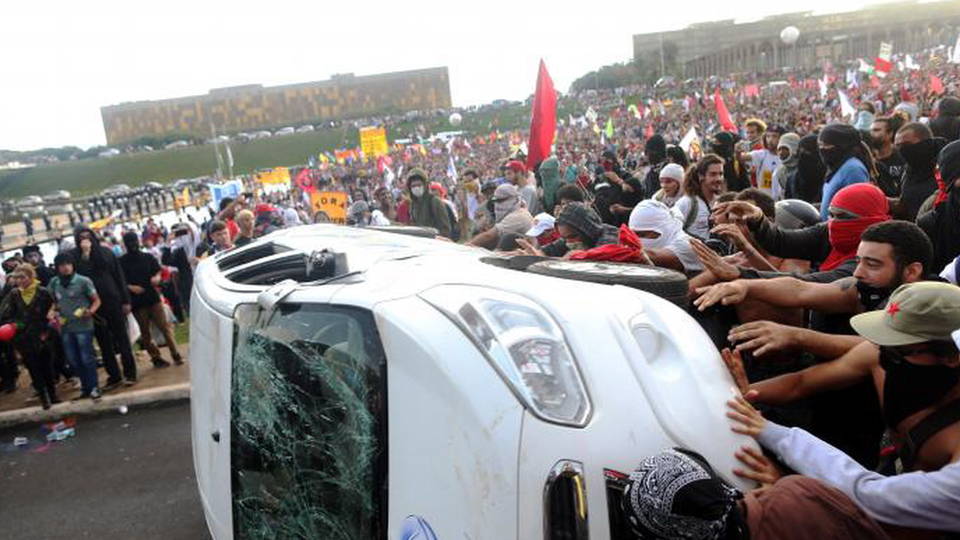
In Brazil, up to 10,000 people protested Tuesday against austerity ahead of a Senate vote in which lawmakers approved measures to impose a strict cap on federal spending. Leftist opposition lawmakers say the legislation will destroy education and health programs. The vote to approve the constitutional amendment is a victory for Brazilian President Michel Temer, who took power after the impeachment of Dilma Rousseff in a process she and others have called a coup.
TOPICS:
Central American Mothers Search for Children Missing in Mexico
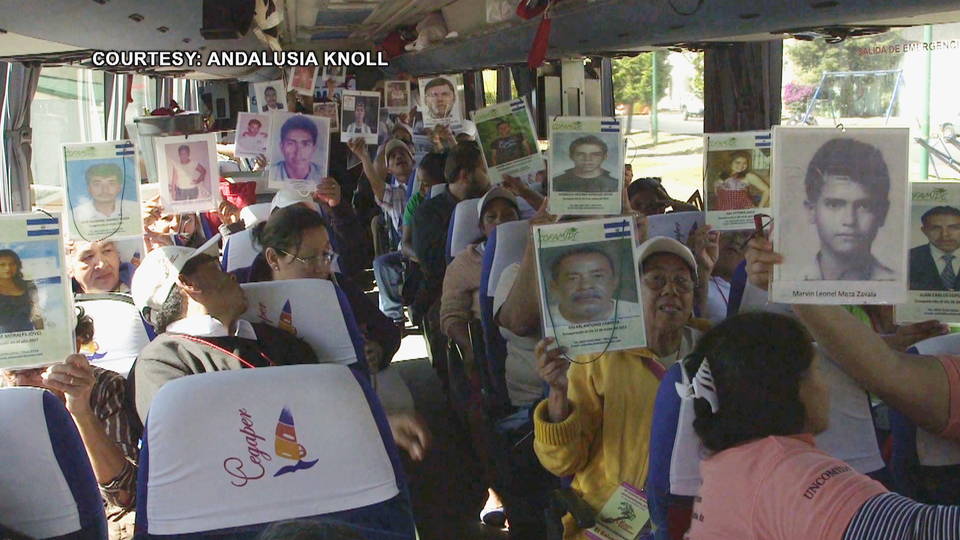
A group of women from the Caravan of Central American Mothers of Missing Migrants are traversing Mexico in search of their children, who went missing as they attempted to cross the country to reach the United States. The International Crisis Group says tens of thousands of Central American migrants fleeing violence in their home countries go missing each year in Mexico. Caravan organizers say they’ve found at least 265 missing children over the 12 years they’ve been organizing the caravan. This is Anita Zelaya, from El Salvador, who has been looking for her son since 2002.
Anita Zelaya: "I am hopeful that I am going to find my son alive. There is so much injustice, and I, as a mother, am not OK with the fact that our children are massacred and victims of all that happens to them on the journey. I do not agree. We know that, sadly, Mexico, as the name of the caravan shows, is looking for life in paths of death. It is a journey of kidnappings, a route of muggings, a route of rape and, sadly, a route of extortions. Unfortunately, our children are still disappeared."
TOPICS:
Canada: PM Trudeau Approves 2 Major Tar Sands Pipelines
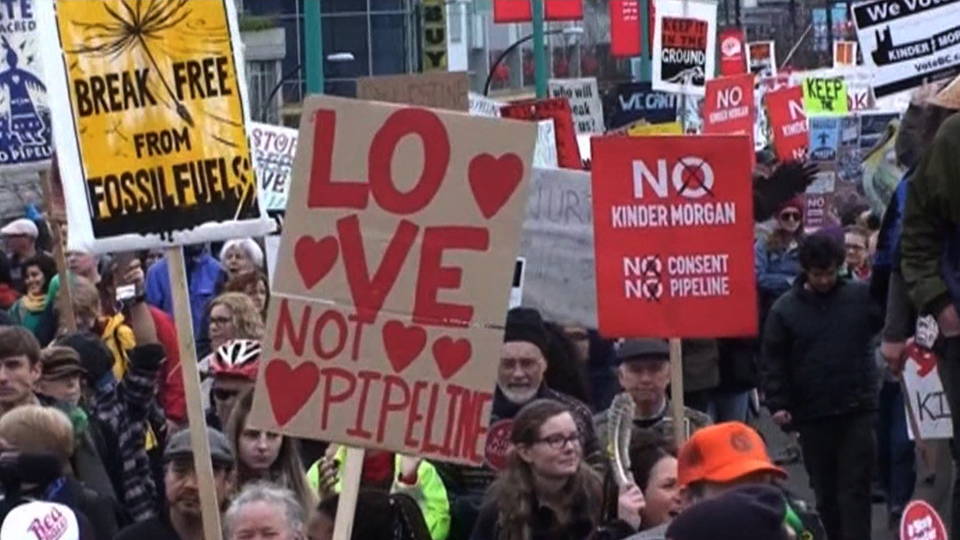
In Canada, Prime Minister Justin Trudeau has approved two major pipelines: Kinder Morgan’s $5 billion Trans Mountain pipeline and the $7.5 billion Enbridge Line 3 pipeline. The Trans Mountain pipeline would carry oil from the Alberta tar sands to a port in Vancouver. The Enbridge Line 3 pipeline would carry tar sands oil from Alberta across the U.S.-Canadian border to a terminal in Superior, Wisconsin. Both pipelines face massive resistance from Canadian First Nations, who held a ceremony Tuesday in which more First Nations signed on to a treaty declaring they will fight all new tar sands infrastructure. One hundred twelve Canadian First Nations and some U.S. Native American tribes, including the Standing Rock Sioux Tribe in North Dakota and the White Earth Nation in Minnesota, have now signed the continent-wide "Treaty Alliance Against Tar Sands Expansion."
Al Gore: Dakota Access Pipeline is an "Absolute Atrocity"
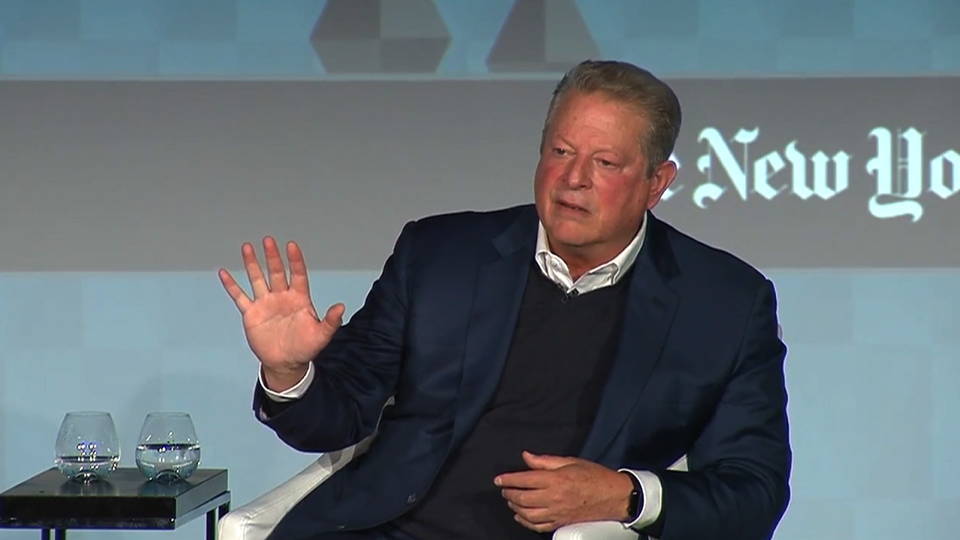
In Washington, D.C., former Vice President Al Gore has spoken out against another pipeline, the $3.8 billion Dakota Access pipeline, while speaking at The New York Times Global Leaders’ Collective conference.
Al Gore: "The massive investment in these pipeline infrastructure projects will be amortized over 50 to 75 years, and we need that capital to flow into renewables. This Standing Rock project is an atrocity. It is an absolute atrocity. And I wish that President Obama would step in before there is more violence out there against those—they call themselves water protectors. This is an embarrassment to our country. All those promises have been broken for so long. Using water cannons in subfreezing temperatures, that’s inhumane."
TOPICS:
Australia's Great Barrier Reef Has Worst Die-Off on Record

This comes as the coral of Australia’s Great Barrier Reef has experienced its worst die-off on record, as a result of warmer ocean water due to climate change. Scientists say bleaching has killed two-thirds of the coral on the 430-mile northern stretch in only nine months. This is Terry Hughes of the Australian Research Council.
Terry Hughes: "Well, we’ve seen now three bleaching events on the Great Barrier Reef. The first one was in 1998, the second in 2002, and the third one this most recent summer in 2016. This one is by far the most extreme. And we’ve seen three of these events now with just 1 degree of global warming. So, 2 degrees of global warming, which is the international target, is going to be a very challenging place for the Great Barrier Reef."
TOPICS:
3 Killed by Fires in Tennessee, 3 Die in Alabama Tornado
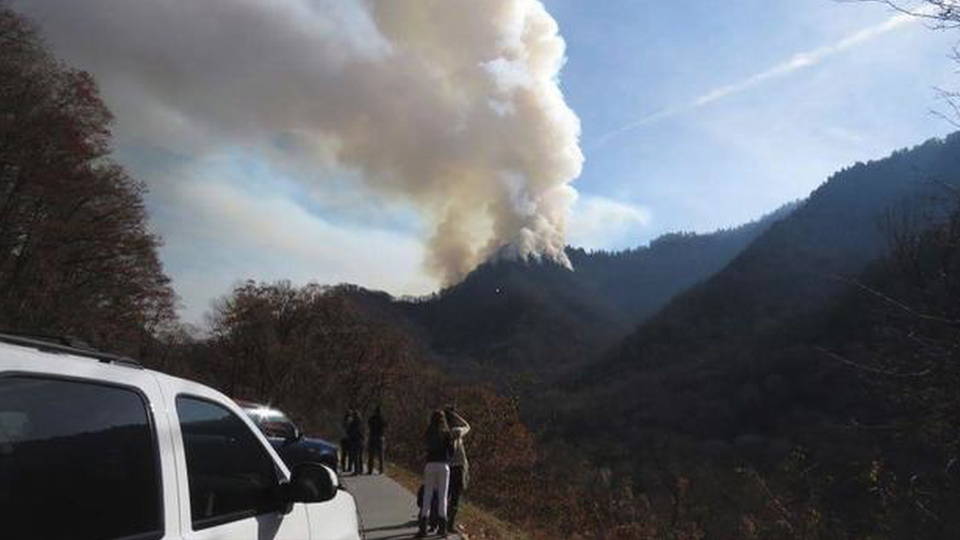
In Tennessee, at least three people have died and hundreds of homes were destroyed after a wildfire tore through resort towns near the Great Smoky Mountains. As many as 14,000 people fled Monday and Tuesday as 90-mile-per-hour wind gusts pushed the fires into the towns. This is the mayor of Sevier County, Larry Waters.
Mayor Larry Waters: "We continue to learn devastating news about the magnitude of the losses that we are experiencing as a community in Sevier County. I have now been able to confirm the loss of three lives in Sevier County. We are deeply saddened by these losses, and we extend our prayers to the family—families of all of them. We do not have information to release at this time regarding identities, as we are awaiting notification of next of kin."
This comes as, early this morning, a tornado killed three people after it tore through a mobile home park in Alabama and critically injured four children after hitting a daycare center.
TOPICS:
South Carolina: Judge Allows Dylann Roof to Represent Himself at Trial
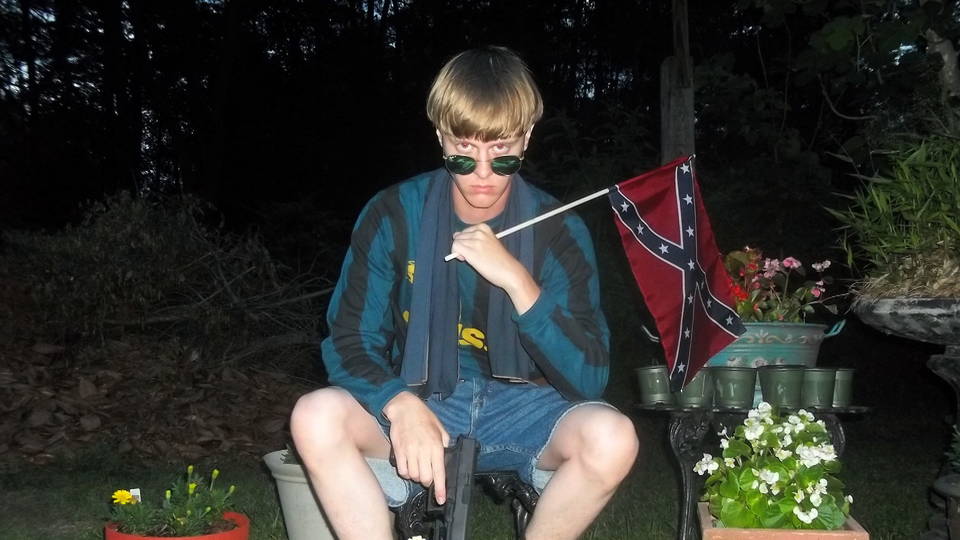
In South Carolina, a judge is permitting Dylann Roof to represent himself at his own trial, which opened Monday in Charleston. Prosecutors say Roof opened fire at Emanuel AME Church in Charleston, South Carolina, in June 2015, killing nine black worshipers, including the pastor, Clementa Pinckney. Roof, who is pleading not guilty, embraced white supremacist views and was shown in photographs posing with the Confederate flag and a pistol.
TOPICS:
Arizona: Guatemalan Woman Detained at For-Profit Eloy Center Dies in ICE Custody
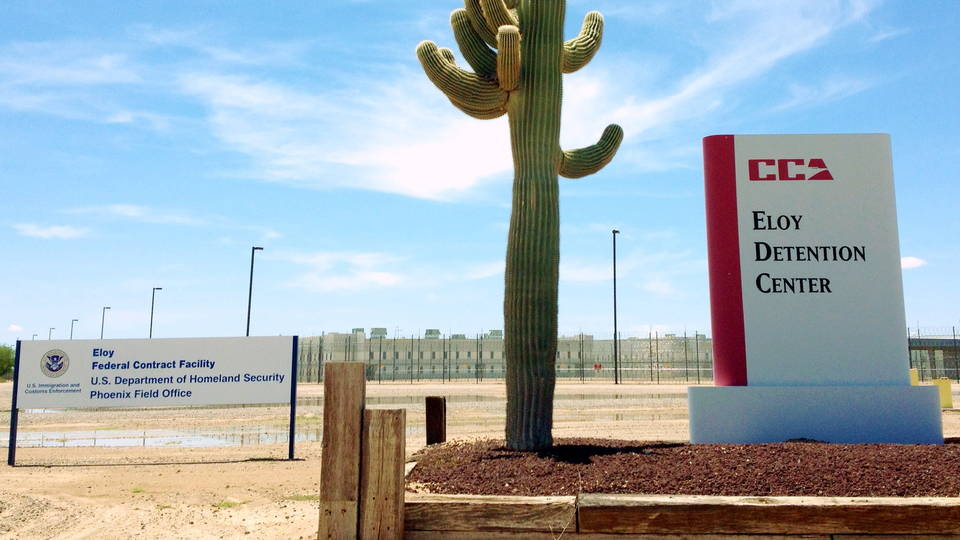
In Arizona, a 36-year-old Guatemalan woman has died in the custody of Immigration and Customs Enforcement, after she suffered a series of seizures while being detained at the Eloy Detention Center. Raquel Hidalgo had been held at Eloy since November 13 after U.S. Border Patrol agents captured her as she tried to cross the U.S.-Mexico border. She died after being rushed to a nearby hospital Sunday. Since 2003, at least 15 people have died while confined at the for-profit Eloy Detention Center, which is run by Corrections Corporation of America, or CCA, which recently changed its name to CoreCivic.
TOPICS:
Former Black Panther Sundiata Acoli Denied Parole After 40+ Years in Prison
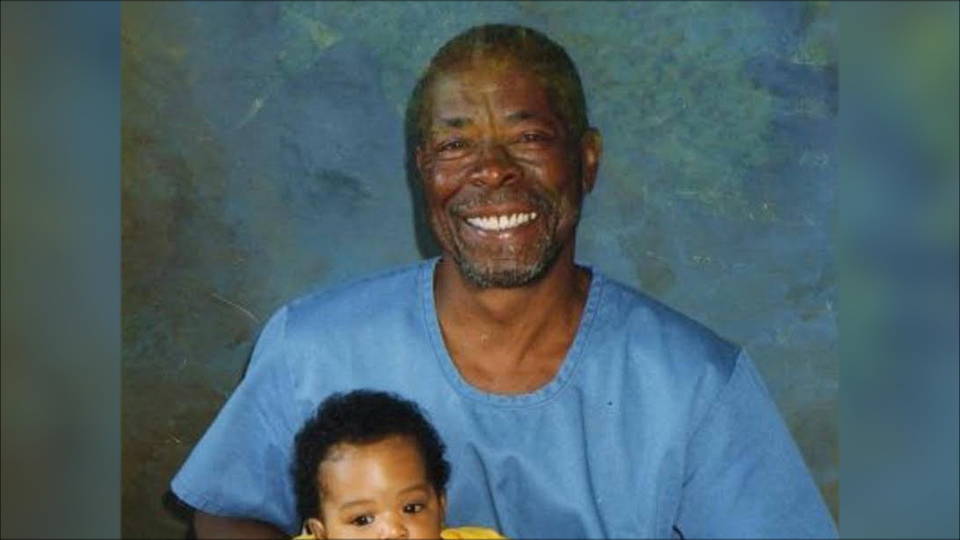
And former Black Panther Sundiata Acoli has been denied release by the New Jersey State Parole Board after more than four decades in prison. He first became eligible for parole in 1992 and turns 80 years old in January. Acoli was convicted of killing a state trooper during a 1973 shootout on the New Jersey Turnpike, along with fellow Panthers Zayd Malik Shakur, who was also killed, and Assata Shakur, who has said she was shot by police while she had both arms in the air. Assata Shakur later escaped to Cuba, where she has political asylum. Acoli is one of at least 15 former members of the Black Panther Party who are still in prison. His lawyers plan to appeal the decision.
TOPICS:
Donate today:
Follow:




CELEBRATE 20 YEARS OF DEMOCRACY NOW!

Democracy Now!'s 20th Anniversary Celebration
NEW BOOK

12/5 New York, NY
COLUMN

Senior TV Producer
-------
207 West 25th Street, 11th Floor
New York, New York 10001, United States
-------
Democracy Now! Daily Digest: A Daily Independent Global News Hour with Amy Goodman & Juan González for Tuesday, November 29, 2016
democracynow.org
Stories:

Democracy Now! Special: Bernie Sanders on Trump's Victory & the Need to Rebuild the Democratic Party
AMY GOODMAN: Former presidential candidate Senator Bernie Sanders of Vermont. More of him in a minute. ... Read More →

Bernie Sanders on Green Party's Effort to Force Recounts in Wisconsin, Michigan & Pennsylvania
SEN. BERNIE SANDERS: You want me to tell you exactly what will happen? Well, I think—no, yeah, I think what most people expect is not much will happen, but we will see. But it touches on—so, in other words, all that they are doing is what happens all of the time. Nothing new about that. Recounts take place. When I was elected mayor, there was a recount. Right now in North Carolina, the Republican governor, who appears to be losing, wants a recount. Not a new idea. But I’ll tell you what it touches on, why it is touching a nerve, is not because I believe that it’s going to reverse the results. I don’t think that’s the case. But this is what people, especially with all of this barrage of attacks on websites and so forth, are really wondering, whether when they vote, is their vote legitimate? You know, and there’s talk: Have the Russians interfered in this thing? So that’s what it will deal, which takes us to another issue. And I wouldn’t have said this a few years ago, but I will say it tonight. I was just researching this. You know, in Canada, they still do their voting with paper ballots. And maybe it takes an extra hour or two to get the results out to the media, but they manage to survive. And I kind of think we should go back to paper ballots, lock them up. But I think—I think what this suit is about is touching on that issue and trying to see if the results end up being significantly different than what we were announced on election night. ... Read More →

Bernie Sanders: "I Was Stunned" by Corporate Media Blackout During Democratic Primary
SEN. BERNIE SANDERS: Yeah, I think a guy at CNN said something similar, because if you say outrageous things, this is what CNN lives for. That’s what they live for. And then they got to have somebody else: "Did you hear what he said? Oh, my god, it’s terrible." And they go on and on. And that’s—that is coverage. Here is something. During the primary campaign, somebody—I think it was the Shorenstein school of media at Harvard, just over there. They studied the kind of coverage, and they said that something like 90 percent of media coverage during the primary—and I don’t think they got any better during the general—was all on this kind of stuff, gossip; 10 percent on issues, which surprised me. I didn’t even think it was 10 percent on issues, but... ... Read More →

Sanders on Trump: We Need to Think Every Day How to Mobilize People to Defeat This Horrific Agenda
AMY GOODMAN: We’ll be back with Bernie Sanders, senator of Vermont, former presidential candidate, in a minute. ... Read More →

Bernie Sanders on the Dakota Access Pipeline & Treaty Rights Violations by U.S. Government
I think what we have done is, number one, demanded that the president do what he did with Keystone. A lot of people put a lot of pressure on the president, and he finally did the right thing. And that is to kill the Keystone pipeline, which, by the way, under a Trump may be reopened again. But that is what he should be doing. And certainly, the demand must go to the North Dakota authorities that the kind of military presence that exists there is simply not what is acceptable. So, we have written to the president. We are going to continue to put pressure on the president to do everything he can to protect the Native Americans in the area and the protesters in the area. ... Read More →

Will We Be Feeling the Bern in 2020?: Sanders on Whether He'd Ever Run for President Again
A very happy birthday to Deena Guzder! ... Read More →

Bernie Sanders on the Life and Legacy of Late Cuban Revolutionary Fidel Castro
But this statement, as I mentioned earlier, the danger of this statement is not just that it is delusional and incorrect, is that it sets—if you have a president who believes that millions of people voted illegally, you’re telling every Republican official in this country to suppress the vote, to make it harder for people to vote, whether they are immigrants, whether they are people of color, whether they are poor people, young people or old people. That is the danger of that statement. And that’s something we have got to fight tooth and nail. ... Read More →
Headlines:

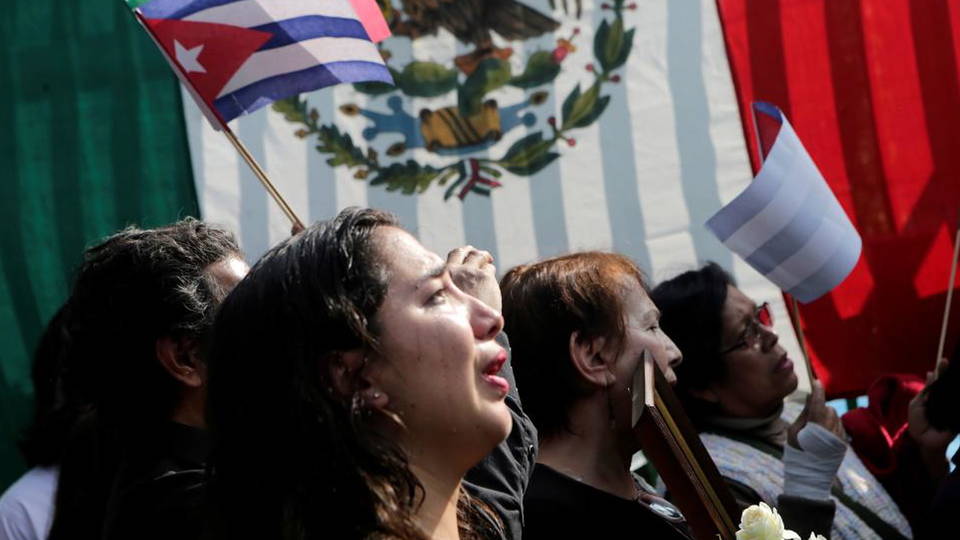
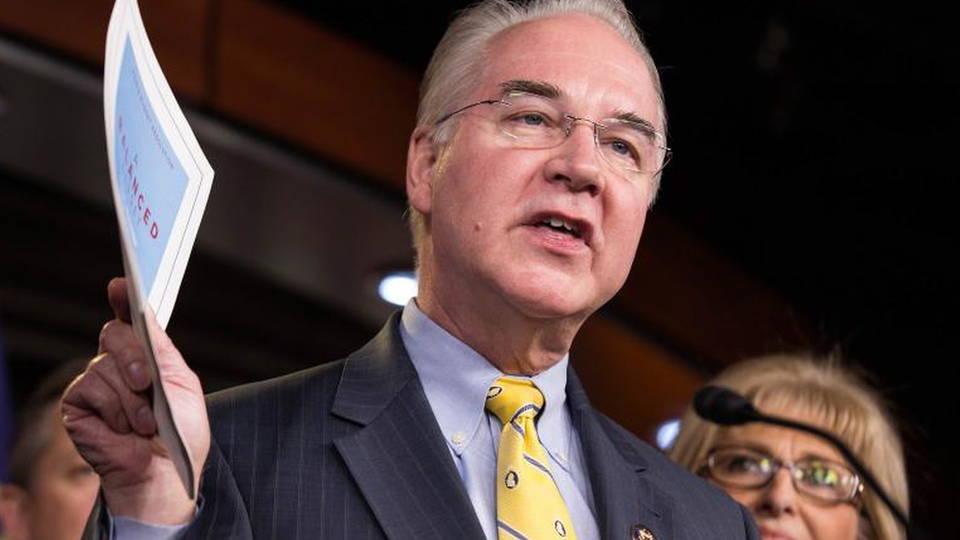
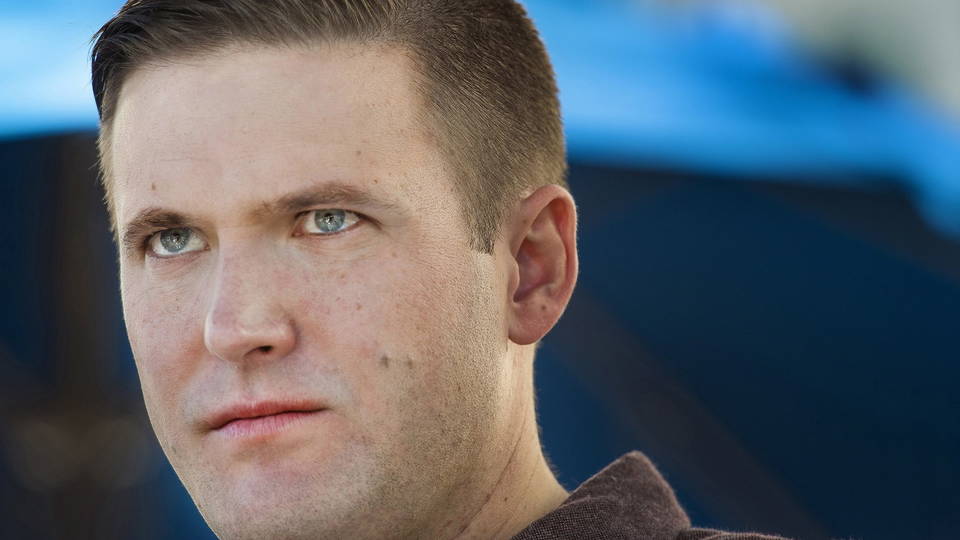
Colombia: Plane Crash Kills 76, Including Journalists & Soccer Players
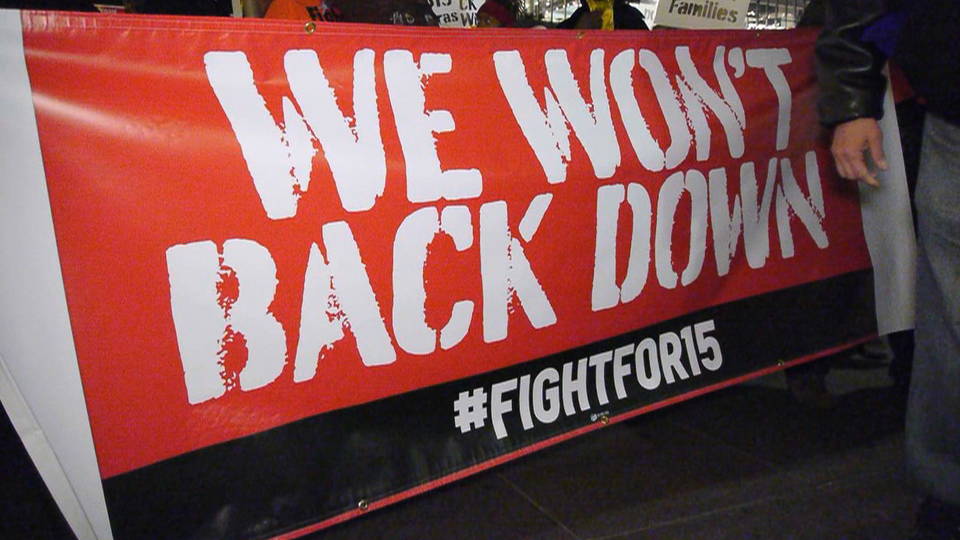
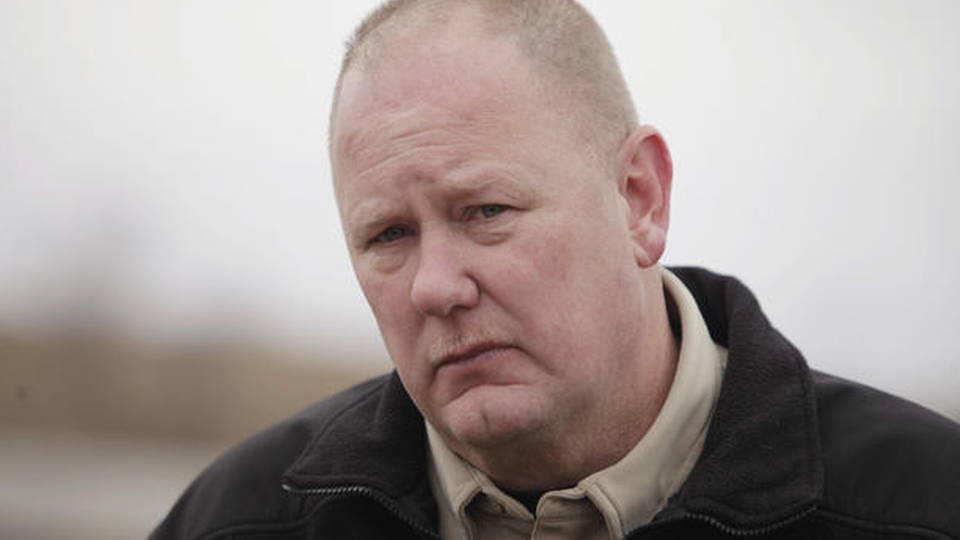
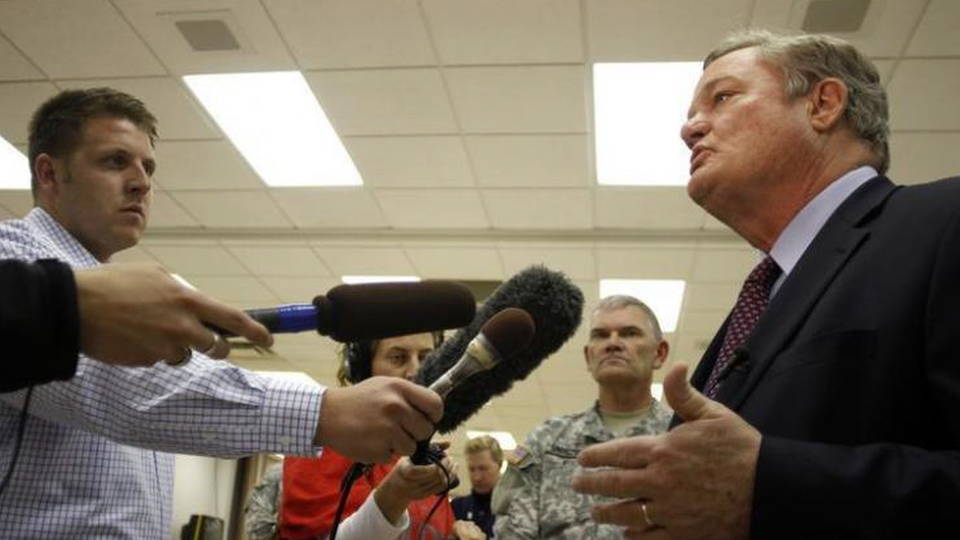
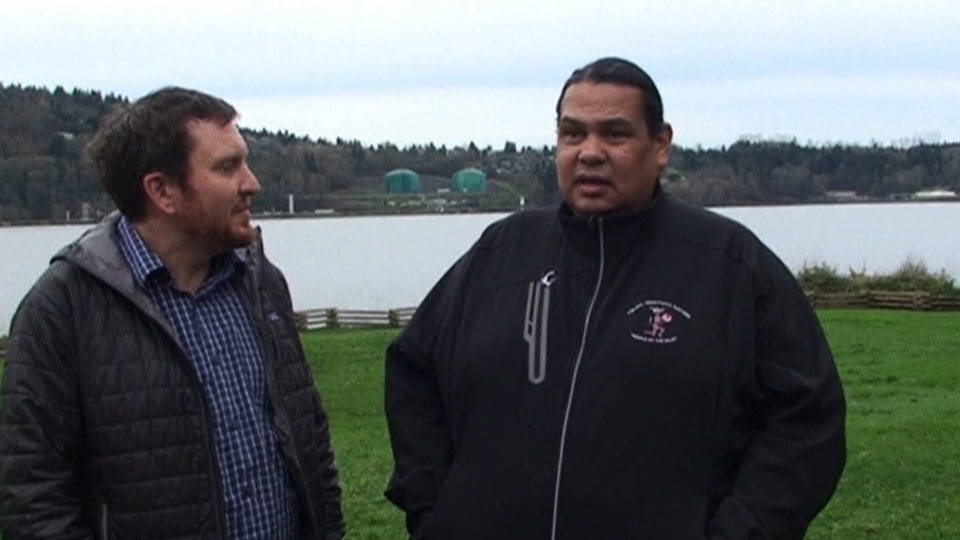
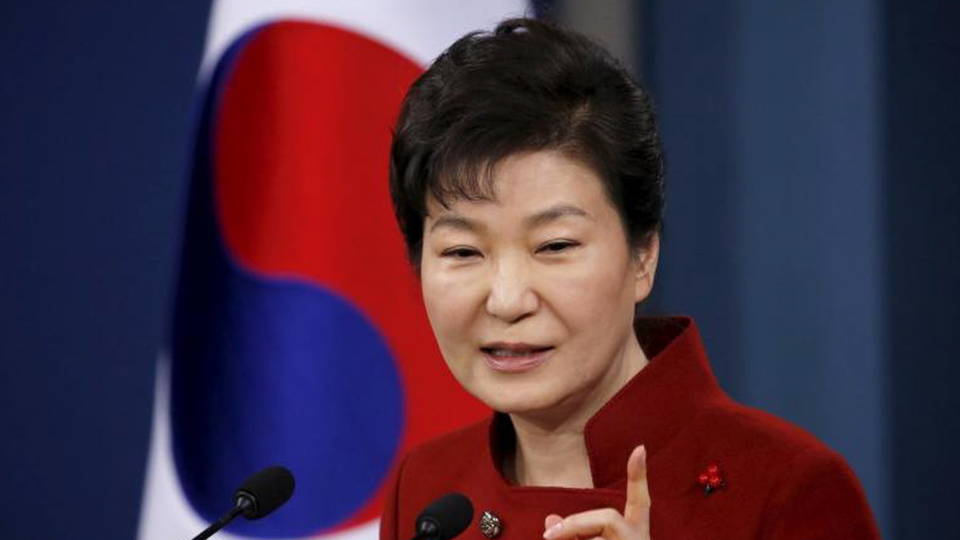
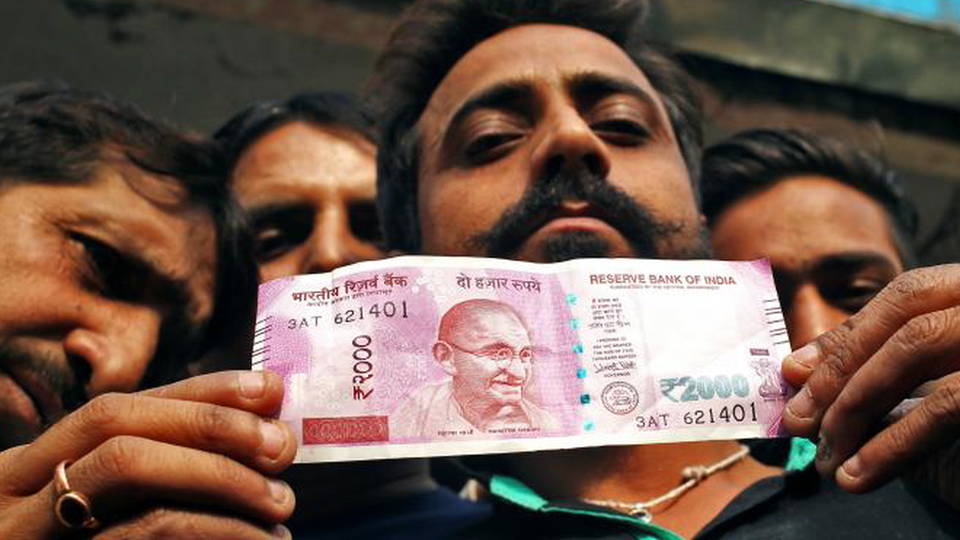
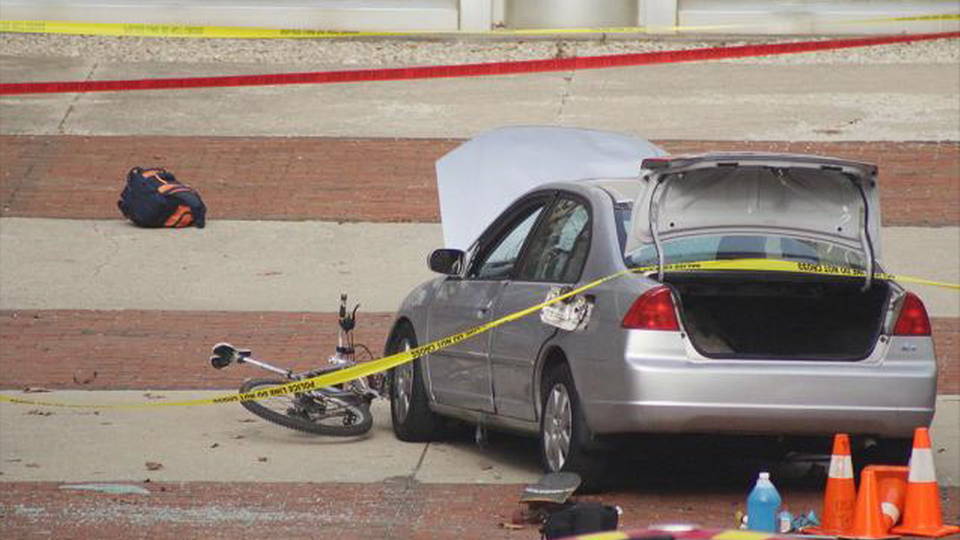
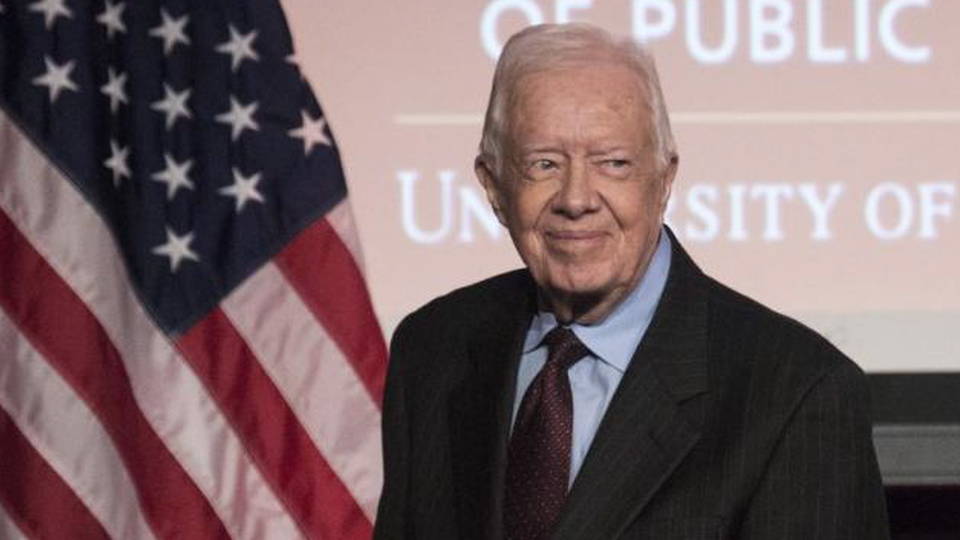 -------
-------
Donate today:
Follow:



CELEBRATE 20 YEARS OF DEMOCRACY NOW!
Democracy Now!'s 20th Anniversary Celebration
NEW BOOK
-------
Democracy Now! Daily Digest: A Daily Independent Global News Hour with Amy Goodman & Juan González for Tuesday, November 29, 2016
democracynow.org
Stories:

Democracy Now! Special: Bernie Sanders on Trump's Victory & the Need to Rebuild the Democratic Party
In a Democracy Now! special, Vermont Senator Bernie Sanders sat down with Amy Goodman at the Free Library of Philadelphia on Monday night in his most extensive broadcast interview since Donald Trump defeated Hillary Clinton two weeks ago. He began by speaking about Donald Trump’s election night victory and the need to rebuild the Democratic Party.
TRANSCRIPT
This is a rush transcript. Copy may not be in its final form.
AMY GOODMAN: Today, in a Democracy Now! special, we spend the hour with Vermont Senator Bernie Sanders in his most extensive broadcast interview since Donald Trump defeated Hillary Clinton two weeks ago. In the wake of the election, Sanders has emerged as one of the most powerful voices in Washington. During the Democratic primary, the independent, the self-identified socialist shocked the nation by winning 22 states and about 45 percent of pledged delegates, while challenging Hillary Clinton, who began her campaign with the support of the entire Democratic Party establishment. Many Sanders supporters now wonder if he would have been the stronger candidate to face Donald Trump in the general election.
While Sanders lost the primary, he has not given up the fight. He has now launched a campaign to rebuild the Democratic Party from inside out. Earlier this month, he was elected to a leadership position in the Senate as the new chair of the outreach for Senate Democrats. In addition, Sanders is leading the push for Congressman Keith Ellison to become the next head of the Democratic National Committee. Ellison is the first Muslim elected to Congress, and he’s the co-chair of the Congressional Progressive Caucus. Meanwhile, some of Sanders’ top campaign staffers have launched a new political action organization called Our Revolution to fight for progressive change. Our Revolution is also the name of Bernie Sanders’ new best-selling book.
Well, on Monday, I interviewed Bernie Sanders in front of a live audience at the Free Library of Philadelphia.
AMY GOODMAN: Where were you on election night?
SEN. BERNIE SANDERS: Home.
AMY GOODMAN: And talk about what you went through.
SEN. BERNIE SANDERS: Well, when the results came in from Indiana, I was very nervous. We had an outside chance with a conservative Democrat to win that seat—no one thought that Clinton was going to win it—and he got beaten rather badly, and I started getting nervous. And it was downhill from there. I went into the evening thinking that it was about a two-to-one shot that Clinton would win. So, I mean, I was—I was not shocked that Trump won—surprised, but not shocked—for the reasons, some of the reasons, that I gave. But I will not deny to you that it was a very depressing evening. I did not want to deal with the media. I didn’t want to—I was invited to be on, you know, a million different things. I didn’t even show up at the state event, you know. So, I will not deny that it was a depressing evening. And since then, I’ve been thinking as hard as I can, with other people, about how we go forward and what the best response is.
AMY GOODMAN: This also catapults you into the position of the most powerful, non-Democratic Democrat in the country.
SEN. BERNIE SANDERS: Well, there are not too many non-Democratic Democrats who are in the United States Senate, so it doesn’t say much. But yeah, it—but I think your point is that last week or two weeks ago Chuck Schumer, who is now the leader of the Democrats in the Senate, put me on leadership. And he gave me a position that I wanted, and that is to be chair of the outreach effort. And what I am going to do is use that position, with your help, with all of your help, to transform the Democratic Party. I think—you know, it is very easy to beat up on people when they’re down, and that’s not my intention. You know, Secretary Clinton and her supporters are hurting now. It’s not my intention to be beating up on them. But it goes well beyond the presidential race.
Right now in the United States, as you know, Mr. Trump will be inaugurated. Right now, the Republicans control the U.S. Senate. Democrats, I had hoped—we thought we had a better than even chance of gaining control. We did not. We’ll end up with 49 seats. Democrats picked up a few seats in the House, but the Republicans will continue to control the House. Not only that, in about two-thirds of the states in this country, there are Republican governors. And in the last eight or so years, Democrats have lost some 900 legislative seats in state capitols all over this country. So I think any independent assessment, without casting any blame, says the current approach has failed. All right? When you lose, you know, it’s like they always say about the football coach: You know, if you’re zero and 10, you’re not doing well. Well, the current approach clearly is not succeeding, and we need a new approach.
And the new approach, I think, is to, A, create a 50-state strategy. That means we start playing ball in states that the Democrats have conceded decades ago. But more importantly, we create a kind of grassroots party, where the most important people in the party are not just wealthy campaign contributors, but working people, young people, people in the middle class, who are going to come in and going to start telling us what their needs are and give us some ideas as to how we go forward. And I accept this responsibility as outreach chair with a lot of trepidation, but also with excitement. I’m going to be going around the country to try to do everything that I can to create a party which represents working people and not just the 1 percent.
AMY GOODMAN: And the issue of who will head the Democrat—the DNC?
SEN. BERNIE SANDERS: I am strongly supporting a congressman from Minnesota named Keith Ellison. And the reason—I’ve known Keith for a number of years. Keith is the chair—co-chair, along with Raúl Grijalva, of the House Progressive Caucus, which is, by definition, the most progressive caucus in the U.S. House. And Keith fundamentally believes, as I’ve indicated, that we need to make a major transformation of the Democratic Party, we need to make it into a grassroots party, and he has some very specific ideas as to how to do that. So I’m strongly supporting Keith, and I’ll do everything I can to [inaudible].
AMY GOODMAN: And the significance of his being the first Muslim congressmember at a time when the president-elect says he wants to set up a Muslim registry?
SEN. BERNIE SANDERS: Obviously, there is great symbolism in that. But to me, to be honest with you, as somebody who is not a great fan of identity politics, I am supporting Keith because he is a strong progressive whose whole life has been about standing up for working families and the middle class and low-income families. But your point cannot be denied. And that is, it will be a statement to the entire country that the leader of the Democratic Party is a Muslim, that we want a party of diversity, that we will not accept for one second the bigotry that Trump has been espousing during his campaign.
AMY GOODMAN: What do you think Donald Trump represents?
SEN. BERNIE SANDERS: I mean—
AMY GOODMAN: And who do you think he represents?
SEN. BERNIE SANDERS: That’s a good question, and I don’t know that I can give you a definitive answer, but this is what I think. For a start, in terms of the campaign, what he did is, as I indicated in my remarks, he touched a nerve. And it would be wrong to deny that. There are some people who think that everybody who voted for Donald Trump is a racist, a sexist or a homophobe or a xenophobe. I don’t believe that. Are those people in his camp? Absolutely. But it would be a tragic mistake to believe that everybody who voted for Donald Trump is a "deplorable." They’re not. These are people who are disgusted, and they are angry at the establishment. And the Democratic Party has not been clear enough, in my view, about telling those people, whether they are white, whether they are black, Latino, Asian American or whatever, women, gay, whatever, that we are on their side. And too often what we look at is identity. You’re a woman. Well, that’s good, but we need more women in the political process. We need more African Americans in the political process, more Latinos. No question about that. But we need people who will have the guts to stand up to the billionaire class and corporate America and fight for working families.

Bernie Sanders on Green Party's Effort to Force Recounts in Wisconsin, Michigan & Pennsylvania
Green Party presidential nominee Dr. Jill Stein has filed a lawsuit in efforts to force ballot recounts in Wisconsin, Michigan and Pennsylvania. On Monday night at the Free Library in Philadelphia, Democracy Now!’s Amy Goodman sat down with Vermont Senator Bernie Sanders to speak about the recount effort.
TRANSCRIPT
This is a rush transcript. Copy may not be in its final form.
AMY GOODMAN: We return to my conversation with Senator Bernie Sanders of Vermont. We spoke Monday night at the Free Library of Philadelphia.
AMY GOODMAN: What do you think of Jill Stein’s demand for the recount, the Green Party’s demand—
SEN. BERNIE SANDERS: Well, it’s not a demand.
AMY GOODMAN: —in Wisconsin, in Michigan, in Pennsylvania?
SEN. BERNIE SANDERS: They’re exercising their rights.
AMY GOODMAN: And now the Clinton campaign supporting it.
SEN. BERNIE SANDERS: Yeah, yeah. I mean, I think it’s fine.
AMY GOODMAN: What’s the significance? What will happen? What can happen?

Bernie Sanders: "I Was Stunned" by Corporate Media Blackout During Democratic Primary
When Vermont Senator Bernie Sanders first launched his campaign, the mainstream media called him a fringe candidate and largely ignored his campaign. But during the Democratic primary, the independent, self-identified socialist shocked the nation by winning 22 states and about 45 percent of pledged delegates while challenging Hillary Clinton, who began her campaign with the support of the entire Democratic Party establishment. Many Sanders supporters now wonder if he would have been the stronger candidate to face Donald Trump in the general election. On Monday night, Bernie Sanders sat down with Amy Goodman for an interview in front of a live audience at the Free Library of Philadelphia and spoke about the corporate media, the Democratic primary and when he began to "feel the Bern."
TRANSCRIPT
This is a rush transcript. Copy may not be in its final form.
AMY GOODMAN: We return to my conversation with the former presidential candidate Senator Bernie Sanders of Vermont. We spoke last night at the Free Library of Philadelphia.
AMY GOODMAN: You were considered a fringe candidate. Maybe you, yourself, considered yourself a fringe candidate. When did the moment come when you actually felt the Bern?
SEN. BERNIE SANDERS: Well, I’ll tell you. This is what I thought, you know, and it’s been a crazy two years. But, you know, what I thought is, look, I wasn’t born yesterday, and I wasn’t—you know, I didn’t just get involved in politics two years ago. I’ve been representing the state of Vermont for 25 years in Congress. I was mayor of the city of Burlington for eight years, where I took on Democrats and Republicans to win election. And I knew, you know, that the message that we had—I could see it in Vermont. You go to the rural areas, by the way, where people are not necessarily pro-choice, where they may not be enthusiastic about gay marriage, where they may or may not believe that climate change is real, but they are sick and tired of having to work two or three jobs, not being able to send their kids to college, worried about their own parents. I picked that up, OK, in Vermont. And I thought that the message that resonated in Vermont—and I won my last election in Vermont four years ago with 71 percent of the vote. I did not believe for one minute that Vermont was any different than the rest of the country.
But what ended up—to answer your question, what happened is, before I decided to run—and the book goes into it—we went around the country. And we did, honestly—you know, politicians always say, "Well, the people asked me to run," you know, after they had already made a decision to run. But the truth is, I didn’t know. How responsive would people be to our message? Well, I’ll never forget. We were in—on a beautiful Sunday afternoon in Los Angeles—maybe the weather is always beautiful there, I don’t know. But anyhow, it was—and I thought nobody would show up at a meeting. We had the musicians’ union hall. We had 500 people coming out: "Run, Bernie, run." We were in Minneapolis—this is a funny story, which we relate in the book. You know, we didn’t know our way around Minneapolis. So we were driving around. Suddenly we see this long line of people, and I comment to the guy next to me. I said, "I wonder what concert is going on." Well, it turns out, 7,000 people were there for an event. This is early on.
And what we were beginning to see with the turnouts, the turnouts at our rallies, more and more people coming out, more and more excitement, more working people, more young people, who indicated to me, in a million different ways, they were sick and tired of establishment politics and establishment economics. They wanted real change. And I will tell you, as the campaign progressed, that it was an awe-inspiring moment, a humbling moment, to be walking out on a stage—I think it was in Portland, Oregon, where the Trail Blazers play in the NBA—and you look out, and there are 28,000 people at a rally in Portland, 25,000 in Seattle, 27,000 in Los Angeles. So people were starting to come out. The word was getting around. And it was especially gratifying to see so much beauty in the faces of young people who want real change in this country.
AMY GOODMAN: And yet, who heard you were the people in that room, in each place. You were having the largest rallies of anyone, including Donald Trump, certainly far surpassing Hillary Clinton. But what Donald Trump had that you didn’t was the media. And, you know, that was repeated over and over by those that owned the media. You know, "He is good for us." So, it wasn’t just Fox. It was all of the networks that were Trump TV.
SEN. BERNIE SANDERS: Right. That’s right.
AMY GOODMAN: He didn’t have to travel. He was piped into everyone’s homes.
SEN. BERNIE SANDERS:Absolutely.
AMY GOODMAN: March 15th, Super Tuesday III, was the night when Rubio gave his speech, and Ted Cruz gave his speech, Clinton gave her speech, and Donald Trump, they waited for half an hour for him to give his speech and showed the open podium, as they often did. They showed more of the open podium waiting for Donald Trump than ever playing your speeches. That’s what—those were all the candidates that night. And they played all their full speeches. They did not play one word of your speech. You were speaking in Phoenix, Arizona, to the largest rally of any of those people that night. They didn’t even speculate where you were.
SEN. BERNIE SANDERS: I wish I could disagree with you. No, no, no, Amy is raising a very—and we go into it in the book. I was stunned. I mean, you know, in the middle of the campaign, you’re not figuring out this stuff or thinking about it. Turns out that from January 1st, 2015, I think, through November 2015, ABCEvening News had us on for 20 seconds.
AMY GOODMAN: What was it you did that was so newsworthy?
SEN. BERNIE SANDERS: And it wasn’t much better on NBC or CBS, all right. And that’s just the simple truth. And there are a couple of points. I think—Amy, correct me if I’m wrong, but I think the guy who’s head of CNN said, "Hey, Trump has been fantastic for us." I mean, literally said that. "We’re making huge profits from Trump." And the point to be made is, we had the misfortune of actually trying to talk about the problems facing America and providing real solutions. Trump was tweeting out about how ugly or horrible or disgusting or terrible his opponents were, in really ugly terms. Perfect for the media. That is a great 12-second sound bite. But to talk about why the middle class is in decline or why we have massive levels of income and wealth inequality can’t be done in 12 seconds. And second of all, it’s not something that they are, frankly, terribly interested in.
AMY GOODMAN: It was Les Moonves, who is head of CBS, who said, "It may not be good for America, but it’s good for us."
SEN. BERNIE SANDERS: CBS?
AMY GOODMAN: CBS.

Sanders on Trump: We Need to Think Every Day How to Mobilize People to Defeat This Horrific Agenda
In the wake of Donald Trump’s election victory, Vermont Senator Bernie Sanders has vowed to fight against Trump’s proposed policies to build a wall across the entire length of the U.S.-Mexico border, to reinstate a database for immigrants from majority-Muslim countries and to deport millions of undocumented immigrants. On Monday night, Democracy Now!’s Amy Goodman sat down for an interview with Senator Sanders, who spoke about what it looks like to hold Trump and the Republican Party accountable.
TRANSCRIPT
This is a rush transcript. Copy may not be in its final form.
AMY GOODMAN: Let me ask you about that famous moment in one of the debates with Hillary Clinton where you said you didn’t care about the damn emails. Do you feel the same way today?
SEN. BERNIE SANDERS: What I said—and sometimes it got taken out of context—is that there was an investigation going on and that I wanted to spend—that history, 10 years from now, trust me, no one will remember these damn emails. What they will worry about is people not having healthcare. They’ll worry about climate change. They’ll worry about poverty. They’ll worry about infrastructure. And my point was—and the media often doesn’t play that whole statement—I said, you know, "I’m sick and tired of hearing about your damn emails, because that’s what the whole campaign is about. Why don’t we talk about, A, the collapse of the middle class, income and wealth inequality, healthcare, education, how we move the country forward?" And that was the thrust of my point. It is not my style—and sometimes, amazingly enough, I get criticized for it—for running, you know, ugly and negative ads. I prefer to stay on the important issues facing the American people. There are other areas we could have gone, as well, that Trump went into, that we chose not to do it, because I think, in my own state, I can tell you that people do want to hear a serious discussion on serious issues. That’s what we tried to do.
AMY GOODMAN: Well, let me tell you the reason I ask this now. This issue that was hijacked by the right-wing media and Trump himself, but the issue of the secretary of state setting up this private email server, and she has her husband, who’s the former president and running a multibillion-dollar foundation, meeting with heads of state, as well, and yet they don’t have accountability here—what this means not only for them, but if this becomes a model, for example, for President Trump. He runs a vast business empire.
SEN. BERNIE SANDERS: Absolutely.
AMY GOODMAN: He is the top government official. If he decides to set up his own private email server and decides that he can disappear tens of thousands of email, there won’t be a government record of what is actually going on.
SEN. BERNIE SANDERS: Right, right. I mean, I think that’s a fair point. And I think, with Trump, the major point is this guy has business enterprises all over the world. And you’re looking just at immense, immense conflict of interest. Every decision that he makes is going to impact his bottom line of some business that he owns all over the world. So it remains a huge issue. And I got your point, too, obviously, you know, and that is the valid criticism of having a private email when you’re doing government business.
AMY GOODMAN: And now his Cabinet appointments, your thoughts on the direction he’s going?
SEN. BERNIE SANDERS: Well, I think this is where—and what our job is—in fact, as I mentioned earlier, I’m going to be, I think, in Indiana on Monday night. And we’re going to go to the Carrier plant, where you have a situation where Carrier is—you all remember air-conditioners—they make furnaces in Indiana, actually. And they decided—they announced last year they’re going to shut down two plants in Indiana, throw 2,100 workers out on the street. This is a company that pays top dollar to its CEOs, head guy makes $14 million. Couple of years ago they had a severance package for a former CEO. You know what the guy got as a golden parachute? $171 million. And now what they want to do is shut the plants down and move to Mexico and hire people in Monterrey for three bucks an hour. So it becomes symbolic of a disastrous trade policy. And we’re going to be there.
But to answer your question, what we have got to do now, to those people who voted for Trump, because they said, "Well, you know, this guy sounds reasonable"—Trump sent out a tweet where he says, "I am the only Republican candidate for president who will not cut Social Security, Medicare and Medicaid." Right? Well, believe me, every American, every person in this country, if I have anything to say about it, will know precisely what is going on with Social Security, Medicare and Medicaid, because, as you’ve indicated, they are beginning to appoint people who are typical right-wing Republicans who want to privatize and cut Social Security. And our job—and we’ve got it. We’ve got every statement that Trump made during this campaign. And we are going to hold him accountable. Every person in this country will know what he said and what he is doing. Trump said, "One of the issues that I think a whole lot of people are deeply concerned about is the high cost of medicine in this country." Trump said during the campaign he was going to take on the pharmaceutical industry. He was going to allow for Medicare to negotiate prices with the drug companies, allow people to reimport medicine from Canada and other countries, where the price is often half as much as it is in the United States. Well, you know what? We are going to remind the American people of precisely what Donald Trump said about that and many other issues.
AMY GOODMAN: So now you have someone like Betsy DeVos chosen to be the new secretary of education, sister of Erik Prince, who, you know—
SEN. BERNIE SANDERS: Blackwater.
AMY GOODMAN: —is founder of the mercenary firm Blackwater.
SEN. BERNIE SANDERS: And multibillionaire, a multi, multibillionaire, I think, very active in politics in Michigan.
AMY GOODMAN: And massive supporter of voucher system for education. And then you have Mike Flynn, the national security adviser nominee. And this goes to another point of—though it’s critical to hold Trump accountable, starting with the Democrats, on the issue of the kill list, President Obama’s kill list, his using extrajudicial powers, executive powers, to kill people—can be Americans—without a judge, a jury, without them being charged with a crime. That’s President Obama, and he’s extending those powers. Your thoughts on President Obama’s use of the kill list and then the idea of President Trump using his kill list?
SEN. BERNIE SANDERS: Well, look, you know, when we talk—obviously, I disagree with Obama in using—unilaterally deciding who’s going to live or die. And, look, it goes without saying that, you know, we are concerned—I am deeply concerned—about virtually everything that Trump is talking about and has talked about in his campaign and the kind of people that he is appointing. But what’s going through my mind right now is to figure out the most effective way that we can fight back. That’s really what I am focusing on right now. And what I will say, and what I believe to be the case, the Republicans are many things, but they’re not dumb. And if millions of people begin to stand up and fight back, they’re going to be thinking twice about doing very bad things.
I’ll give you just one example, Amy. A couple of years ago, sad to say, not only all—virtually all Republicans wanted to cut Social Security. There were a number of Democrats who did, as well. And some of us in the Senate, organizing a defending Social Security caucus, we worked with senior groups all over this country. We got millions of signatures on petitions coming in. And you know what? They backed off. They did not cut Social Security.
So, I think if there’s—if there’s a lesson to be learned right now, when we are fighting for huge stakes—we’re fighting for the future—future of the planet in terms of climate change. We’re fighting for the future of American democracy. We have got to mobilize people and rethink our commitment in terms of what our role is in the political process. And the message I just want to make here in Philadelphia and across this country is it is not good enough to say, "Well, hey, I vote every two years. I vote every four years." That’s fine, but that is not good enough. What we need to do is to be thinking every day the kinds of role we can play in educating and organizing and mobilizing people to defeat this horrific agenda. And I do believe that if millions of people do stand up and fight back, we can stop him from doing some really awful things. And that’s what I am trying to do right now. And we’ve got to mobilize people to do that.

Bernie Sanders on the Dakota Access Pipeline & Treaty Rights Violations by U.S. Government
While former Secretary of State Hillary Clinton remained silent on the ongoing fight against the $3.8 billion Dakota Access pipeline at Standing Rock in North Dakota, Vermont Senator Bernie Sanders has been a vocal supporter of the water protectors. As winter sets in and the water protectors continue their struggle to stop the pipeline, Democracy Now!’s Amy Goodman asked Sanders about the Dakota Access pipeline struggle at a sit-down interview at the Free Library of Philadelphia on Monday night.
TRANSCRIPT
This is a rush transcript. Copy may not be in its final form.
AMY GOODMAN: You recently gave a speech in Washington around the Dakota Access pipeline.
SEN. BERNIE SANDERS: Yeah.
AMY GOODMAN: What can you do right now? It seems—I want to ask a question about the peaceful transition of power that President Obama has been talking about. I thought that meant that people won’t take up arms in this period. But it does seem to be that even proposals that would be put forward now—we just came from Morocco, the U.N. climate summit; the U.S. pulled back on plans it was going to put forward there—that to ease the transition, they will go—the Obama administration will go in the direction of a Trump administration. Now, on the Dakota Access pipeline, President Obama, who visited Standing Rock in 2014—I think the only Native American reservation he visited, with Michelle Obama. They had a pow wow. They met the children. It was quite amazing. So, he knows the Standing Rock tribe in North Dakota. After the video of the dogs came out that we filmed Labor Day weekend, dogs with their nose and mouths dripping with blood from biting the Native American water protectors—they were unleashed by the pipeline guards—President Obama returned from Asia, and when a judge ruled on behalf of the company, three—15 minutes later, an unprecedented three-agency letter came out from the Army, from the Interior and Justice and said, "We’re going to—we are not going to issue this final permit." But the latest we’ve heard this week is the Army Corps of Engineers says people have got to get off the property. What can you do as a senator, even in this time of the peaceful transition of power?
SEN. BERNIE SANDERS: I trust that most people here know about the Dakota Access pipeline. The issues are threefold, and I’ll tell you what we are trying to do. And I think your description of the situation is correct. Number one, we’re dealing with sovereignty rights for Native American people, an invasion of their own property, in violation of treaty rights, which is an endemic problem in this country. Number two, you’re talking about an area where, if the pipe bursts, water, clean water that goes to millions of people in that region, could be severely impacted, at a time when we’re all concerned about the amount of clean water that we have. And thirdly, and most importantly perhaps, you’re talking about whether or not we should be in any way supporting a pipeline which is piping in filthy oil at a time when we need to transform our energy system away from fossil fuel to energy efficiency and sustainable energy. So those are the three issues there.

Will We Be Feeling the Bern in 2020?: Sanders on Whether He'd Ever Run for President Again
In the wake of Donald Trump’s presidential election victory, many Sanders supporters now wonder if he would have been the stronger candidate to face Donald Trump in the general election than Hillary Clinton. Sanders is now working to rebuild the Democratic Party from inside and out. Earlier this month, he was elected to a leadership position in the Senate as the new chair of outreach for Senate Democrats. In addition, Sanders is leading the push for Congressmember Keith Ellison to become the next head of the Democratic National Committee. But would Sanders himself run in 2020? On Monday night, Democracy Now!’s Amy Goodman sat down with Senator Sanders for his most extensive broadcast interview since the election at the Free Library of Philadelphia, where she asked him whether he might "feel the Bern" again in 2020.
TRANSCRIPT
This is a rush transcript. Copy may not be in its final form.
AMY GOODMAN: Will you be running for president again?
SEN. BERNIE SANDERS: Oh, now you sound—OK, now, she waited ’til the end of the program to sound like a mainstream media person.
AMY GOODMAN: Well, will I—do I continue to sound—do I continue to sound that way if I ask you, would you ever consider leaving the Democratic Party, that you’re actually not a part of? And—
SEN. BERNIE SANDERS: Well—well, let me answer the other question, is—four years is a long time. I’ve got to—you know, I’m going to be running for re-election most likely in two years for Vermont to the Senate. And there’s just an enormous amount of political work that has to be done at this—at this moment. I think, you know, as now having been recently appointed a member of the Democratic leadership, my job, with the help of everybody in this room—look, we’re going to ask a lot from you. And here’s the bad news: We don’t want just your money. See, and one of the things that bothers me is—and I will take this on—is Democrats spend an enormous amount of time raising money. And I have—for those people who were kind enough to donate—and we appreciate it very much—I’ve got to ask you a favor. Do not take up so much time—and I mean this very seriously—time of the candidates. They—if I have anything to say about it, they’re going to be going to Kansas and Mississippi and Alabama, where they’re not going to be raising money, they’re going to be talking to working people. So we need financial support, but we don’t have the time to spend an evening with 10 people. We need your financial help, but you have to allow serious people in politics to go out and start talking to working people so that we can transform the politics of this country.
AMY GOODMAN: Is that—is that a yes for 2020?
SEN. BERNIE SANDERS: So, no comment for 2020. It’s a statement that—it is a statement we have to worry, believe me, about 2017 and 2018. And again, let me repeat what I have said throughout the campaign and I believe absolutely from the bottom of my heart: Politics is not about a person. We transform this country not by electing some guy or woman to be president; we transform this country when millions of people stand up and fight back. That will result in good leadership on top. So the goal right now is not to worry about who’s going to be running in 2020 or 2080. The goal now is to mobilize millions of people around a progressive agenda.
AMY GOODMAN: And finally, many people are deeply concerned about the two-party duopoly. You, yourself, are an independent or a socialist. Would you ever consider a third-party run—
SEN. BERNIE SANDERS: Well, I—
AMY GOODMAN: —like joining with the Green Party?
SEN. BERNIE SANDERS: You know, I did that. In Vermont, as many know, I defeated Democrats and Republicans to become mayor, defeated Democrats and Republicans to make it into the Congress. Recent years, Democrats have been more sympathetic. And I’ve been a member of the Democratic caucus for 25 years. So right now I would not have accepted the position of leadership if I was not serious about fundamentally reforming the Democratic Party. So that’s where my head is right now.
AMY GOODMAN: Thank you. Bernie, the last question is—I’m famous for my "finallys."
SEN. BERNIE SANDERS: This is your fourth last question!
AMY GOODMAN: For people who are feeling deeply discouraged right now—
SEN. BERNIE SANDERS: Yes.
AMY GOODMAN: What did you learn from your campaign this time around?
SEN. BERNIE SANDERS: Good question.
AMY GOODMAN: Where you almost won.
SEN. BERNIE SANDERS: Let me just say this, and the feeling of—I wouldn’t use the word "discouragement." The feeling of maybe frustration, depression, all of which is valid, but here’s what I hope that everybody remembers. Anybody who knows anything about American history, you know, think about what this country—and I don’t mean to be ultra-patriotic here, but think about the issues that we had to confront. Think about 120 years ago. There were children—children, kids, 12, 10 years old—working in factories, losing their fingers. People fought back. They fought to create unions. Think about the women’s movement. Think about the civil rights movement. Think about the gay rights movement. Think about the environmental. Think about all of the hurdles that those folks had to overcome. We were, during the course of the campaign—Amy, I don’t know if you know this; I didn’t know it 'til last year—we were in Birmingham, Alabama. And all of you, you know, probably remember the horrific bombing that took place in Birmingham. You remember that, where 12 children were killed? I did not know, until I was at that church, that that month in Birmingham—do you how many bombings there were in that month? Testing you, Amy; I'm asking you a question.
AMY GOODMAN: Two hundred?
SEN. BERNIE SANDERS: No, but there were a lot. Point being—what’s the point? The point is—you know, I thought there was one terrible bombing. There were 13 bombings. That city was under siege by terrorists who did not want to see the Voting Rights Act passed. And people fought back.
So, where we are now is in a difficult moment. I don’t want to minimize the difficulties facing us. But throughout history, serious people have fought back. That’s where we are now, and that is exactly what we have to do. It is not acceptable—it really is not—for people to throw their hands up and say, "Oh, I’m depressed. Oh, I’m giving up." It’s not about you. It’s about the future of this planet. It’s about your kids and your grandchildren. It is about American democracy. It is about some very fundamental issues. And nobody in this room or in this country has a right to say "I give up." On the other hand, you’ve got to jump in and start fighting.
AMY GOODMAN: That’s former Democratic presidential candidate Vermont Senator Bernie Sanders, who’s now in the leadership of the Democratic Party in the Senate, even though he’s an independent socialist. He is author of a new book; it’s called Our Revolution. I interviewed him Monday night at the Free Library of Philadelphia. To watch Bernie Sanders’ full speech before we actually spoke, you can go to democracynow.org.
Tune in Wednesday to Democracy Now!, when we’ll speak with Green Party presidential candidate Dr. Jill Stein about her efforts to force recounts in Wisconsin, Michigan and Pennsylvania.
Also join us next Monday, December 5th, at Riverside Church in New York City for Democracy Now!’s 20th anniversary celebration, featuring Harry Belafonte, Noam Chomsky, Patti Smith, Danny DeVito, Danny Glover, Tom Morello, Juan González and many more. You can visit democracynow.org for details. Love to see you at Riverside Church December 5th.
Oh, and we have job openings. Democracy Now! is hiring a senior TV producer, details on our website, as well as interns and fellows. Check out democracynow.org.

Bernie Sanders on the Life and Legacy of Late Cuban Revolutionary Fidel Castro
Cuba has begun nine days of mourning following the death of revolutionary leader and former President Fidel Castro, who died Friday at the age of 90. In Havana, tens of thousands of people lined up to pay their respects to Castro, who launched the Cuban revolution to oust the U.S.-backed Cuban dictator, Fulgencio Batista, and went on to lead Cuba for nearly a half-century. On Monday night, Democracy Now!’s Amy Goodman sat down with Vermont Senator Bernie Sanders for an interview in front of a live audience at the Free Library of Philadelphia, where he spoke about the life and legacy of the revolutionary leader Fidel Castro.
TRANSCRIPT
This is a rush transcript. Copy may not be in its final form.
AMY GOODMAN: And I know we just have a few minutes, but this is an historic period. Fidel Castro just died on Friday at the age of 90. During the campaign, Hillary Clinton tried to redbait you by raising your support of the Sandinistas and talking about you being favorable towards Fidel Castro. But I was wondering if you could talk about the significance of the life and legacy of Fidel Castro and talk about the U.S. in relation to Latin America today.
SEN. BERNIE SANDERS: Well, it’s not just Latin America. You know, I think what we can say—and I’ve been to Cuba two or three times. I think Jane and I went in 1989 for the first time, and I’ve been back a couple of times, and Jane had some educational work in Cuba. A lot of positive things that can be said. Their healthcare system, for a Third World country, is quite good. It’s universal: All people have healthcare without any expense. Last time I was there, I visited a hospital, where they do very, very serious and good work. They come up with a lot of new drugs, actually, in Cuba, I believe. Their educational system is strong. But in truth, their economy is in pretty bad shape. And in truth, you don’t do very well if you dissent in Cuba.
So I think, you know, if you look over Castro’s long life, he overthrew a terrible dictator, supported by the United States of America, Batista. Some very positive changes came about. And we can argue 'til the cows come home to what degree American interference created the kind of society that exists in Cuba today. So that you could say there are some positive things in Cuba, some very negative things. Fifty years after the revolution, people still can't dissent with freedom. The economy is terrible.
But I think it raises the question—I was on a Sunday show yesterday, and somebody was raising a quote that I made about Castro 30 years ago. And, you know, somehow, they have decided that Fidel Castro is the only—that Cuba is the only nondemocratic country in the world. See, Saudi Arabia is fine. Many other countries in the Middle East are fine. And what we need to do, as a nation, is really start educating the American people. You know, Amy, I’m sure, that in 1954, way back when, we overthrew a democratically elected government in Guatemala, which unleashed decades and decades and decades of horror in that country, supported terrible people in El Salvador. We engineered the overthrow of Salvador Allende in Chile, democratically elected, the first time a person democratically elected in Chile was overthrown through the United States and the CIA. But those issues somehow don’t quite make it onto ABC. But I think it is important to understand our role in the world. In Iran, we overthrew—what was it? 1954?—Mr. Mosaddegh.
AMY GOODMAN: 1953.
SEN. BERNIE SANDERS: '53, Mr. Mosaddegh. And how many people are familiar with that? Did people know that? Good. Not a lot of people—certainly, young people don't know that. But in 1953, at the bequest of British oil companies, the United States government helped engineer a coup of a guy who was democratically elected, who was thinking about nationalizing some of the oil industry there. He was replaced by the shah, who turned out to be a very brutal, brutal man, which then resulted in what we have today with Khomeini coming to power. But these are issues that virtually do—correct me if I’m wrong. Have you seen many shows about that on NBC? You know, it’s just not something to be talked about.
AMY GOODMAN: Tune into Democracy Now!
SEN. BERNIE SANDERS: All right.
AMY GOODMAN: It’s a good show.
AMY GOODMAN: Let me ask you two last questions. The electors of the Electoral College, do you think they have a special role to play, given that Hillary Clinton, it looks like, will have something like, as you pointed out, two-and-a-half million more votes than Donald Trump?
SEN. BERNIE SANDERS: No, I think that’s an archaic concept. I think nobody—I mean, nobody voted for the electors; 99.9 percent of the people don’t even know who the electors are. They voted for Hillary Clinton. They voted for Donald Trump. And their obligation is to support the candidate that the people in the state voted for.
AMY GOODMAN: And your thoughts that Donald Trump said that he would have won the popular vote but for the millions of people who voted illegally?
SEN. BERNIE SANDERS: I know this will shock you: I personally do not believe every single thing that Donald Trump says. No, but I did mention in my remarks that that was a—you know, this is—we can go back and look at all of the totally absurd and nonfactual statements that Trump made. You know, and I am not a guy in politics who really likes to attack viciously my opponents. It’s not my style. But I felt obliged during the campaign to say something that was just patently true, and that is that Trump is a pathological liar. And, you know, I mean, he was saying—and the danger is, it may be—you know, everybody lies. You know you’re lying. But I fear very much that he may be not even knowing that he lies, that he believes that he saw—the only person in the world who saw in New Jersey Muslims on a rooftop celebrating the destruction of the twin towers, the only person in America who saw it, and he’s utterly convinced that he saw it. And he may well be convinced of that. It may not be a lie; he may believe that he saw that.
Headlines:
In Major Offensive, Syrian Gov't Seizes Control of Northeast Aleppo

In Syria, government forces aided by Kurdish troops launched a major ground offensive and seized control of northeast Aleppo Monday from the rebels. The offensive appears to be a major turning point in the war, with the Syrian government now poised to retake control of all of Aleppo, which was once Syria’s largest city and its commercial center. U.N. humanitarian envoy Stephen O’Brien said as many as 16,000 people have fled eastern Aleppo in recent days amid the offensive and heavy bombing. Anti-government activist Zaher al-Zaher described the scene Monday as "doomsday." If the Syrian government retakes all of Aleppo, the anti-government rebels will be left with little territory—only the northern province of Idlib and some areas in the provinces of Aleppo and Homs and around Damascus. The offensive came after eastern Aleppo has been besieged for weeks by Syrian government forces and under aerial attack by the Syrian air force and Russia.
TOPICS:
Cuba in 9 Days of Mourning Following Fidel Castro's Death

Cuba has begun nine days of mourning following the death of revolutionary leader and former President Fidel Castro, who died Friday at the age of 90. In Havana, tens of thousands of people lined up to pay their respects to Castro, who launched the Cuban revolution to oust the U.S.-backed Cuban dictator, Fulgencio Batista, and went on to lead Cuba for nearly a half-century. This is one of the mourners, professor Maydelis Savon.
Maydelis Savon: "Before anything else, I am a revolutionary. I am compelled to be here because I am part of the people. Also, Fidel Castro fought so that all Cubans can have the same rights."
Bolivia has declared a week of mourning for Castro, whose revolution inspired revolutionary efforts across Latin America and the globe and led Castro to become one of the archenemies of the United States. On Monday, President-elect Donald Trump threatened to undo President Obama’s re-establishment of formal diplomatic relations with Cuba and reimpose the crushing economic sanctions against Cuba. Trump tweeted, "If Cuba is unwilling to make a better deal for the Cuban people, the Cuban/American people and the U.S. as a whole, I will terminate deal."
TOPICS:
Trump Picks Anti-Obamacare, Anti-Abortion Rep. Tom Price to Be Health Secretary

Donald Trump has picked Georgia Congressmember Tom Price to be secretary of health and human services. Price is the chair of the House Budget Committee, a member of the Tea Party Caucus and one of the leading opponents of President Obama’s Affordable Care Act. Price supports privatizing Medicare. He opposes abortion and has voted to cut all federal funding for Planned Parenthood. He’s also an opponent of marriage equality, with a track record of voting against measures to prohibit discrimination based on sexual orientation.
TOPICS:
White Supremacist Richard Spencer to Speak at Texas A&M University

Texas A&M University is under fire for allowing white nationalist Richard Spencer to speak at an upcoming campus event despite major opposition on campus to his vocal white supremacist views. Spencer was recently the lead speaker at a white supremacist gathering in Washington, D.C., where he recited Nazi propaganda in original German and spoke openly about white power. Multiple people performed the Nazi salute after his speech and chanted "Heil the people! Heil victory!" Spencer has said he and Donald Trump have a "psychic connection." He’s one of the leaders of the so-called alt-right movement, which embraces white supremacy and espouses racist, xenophobic, homophobic and sexist views. On Monday, the Associated Press issued new guidelines for using the term "alt-right," writing, "Avoid using the term generically and without definition, however, because it is not well known and the term may exist primarily as a public-relations device to make its supporters’ actual beliefs less clear and more acceptable to a broader audience."
Colombia: Plane Crash Kills 76, Including Journalists & Soccer Players
In Colombia, a charter plane carrying 22 players from a Brazilian soccer team and more than 20 journalists has crashed en route from Bolivia to the Medellín airport, killing at least 76 people on board. The majority of the players of the Chapecoense soccer team died in the crash. The team was headed to Medellín to play a finals match in the Copa Sudamericana tournament.
Tens of Thousands #Fightfor15 on National Day of Disruption

Tens of thousands of fast-food workers, home care and childcare workers in 340 cities are slated to protest today for a National Day of Disruption. The protest marks the fourth anniversary of the movement to raise wages known as the #FightFor15. In Chicago, hundreds of janitors, baggage handlers, cabin cleaners and wheelchair attendants at O’Hare Airport are slated to strike to demand a raise to $15 an hour. Hundreds of Uber drivers in cities across the country are also slated to join the protest. This is Michael Vazquez, a wheelchair attendant at New York City’s LaGuardia Airport.
Michael Vazquez: "$10.10 an hour is just not a livable living wage, especially if you have a family. After 40 hours a week, you barely make over $1,000, and you really can’t live in this city with that type of wage, honestly. So we’re here just trying to make a better living for everybody. You know, I’m here on my day off. You know, I’m not just doing this for me. It’s not just about me; it’s about all of us. So, as you can see, as you can hear behind me, we’re all here fighting, we’re all here sticking together, and we’re not going to give up."
This comes as German airliner Lufthansa has canceled 1,700 flights for today and Wednesday amid an ongoing pilots’ strike, which has seen a series of walkouts and strikes since last Wednesday.
National Lawyers Guild Sues Morton County Sheriff, Police for Excessive Force

In North Dakota, a group of lawyers from the National Lawyers Guild has filed a class action lawsuit against Morton County Sheriff Kyle Kirchmeier, Morton County and other law enforcement agencies, arguing they are using excessive force against Native American water protectors fighting the $3.8 billion Dakota Access pipeline. In recent weeks, police have attacked the protectors with rubber bullets, bean bag rounds, water cannons in subfreezing temperatures, sound cannons, explosive tear gas grenades and concussion grenades, injuring hundreds of people. One water protector, Sophia Wilansky, was critically injured during one police attack, after her father says a police concussion grenade exploded and nearly blew her arm off. Click here to see our full interview with Sophia’s father, Wayne Wilansky.
TOPICS:
2,000 Vets to Head to Standing Rock as North Dakota Cuts Off Emergency Services to Camps

This comes as North Dakota Governor Jack Dalrymple has issued an executive order declaring the land where the main resistance camps are located is now an evacuation area. The North Dakota Department of Emergency Services has confirmed the police and National Guard will not move to forcibly evict the water protectors from this land, but the order does mean the state will not provide emergency services to that area. The land is unceded Sioux treaty land that is owned by the U.S. Army Corps of Engineers, which has said they’ll close public access to that area by December 5. More than 2,000 U.S. military veterans are planning to arrive at Standing Rock on December 4, one day before the Army Corps’ scheduled closure, including Hawaii congresswoman and combat veteran Tulsi Gabbard.
TOPICS:
Canada: First Nations Fight Trans Mountain Pipeline Expansion

Meanwhile, opposition is also growing across Canada to Kinder Morgan’s proposed $5 billion Trans Mountain pipeline expansion, which would carry oil from the Alberta tar sands region to ports in Vancouver. This is Rueben George of the Tsleil-Waututh First Nation.
Rueben George: "This has been consistently voted the last 20 years as the most livable place in the world, and it’s because of places like this. It’s because of the mountains. It’s because of the waters. It’s because people get something when they come to the water. They get something when they’re up in the mountains. And I know they will want to protect it, too, because it doesn’t service Canadians. It doesn’t service jobs, or it doesn’t help our economy. It’s to service a greedy 1 percent. And our plan, of what we do, using our own resources, is for everybody."
TOPICS:
South Korea's President Offers to Resign Amid Corruption Scandal

South Korean President Park Geun-hye has offered to resign amid an ongoing corruption scandal. Earlier this month, as many as 1 million people took to the streets of Seoul to demand her resignation over claims she helped a close friend embezzle up to $70 million. She said she’d let the National Assembly decide if and when she should leave office.
TOPICS:
India: Thousands Protest Prime Minister's Monetary Devaluation

In India, thousands of people protested Monday against Indian Prime Minister Narendra Modi’s recent decision to pull 500- and 1,000-rupee notes out of circulation overnight, causing havoc for hundreds of millions of people whose savings are entirely in cash. The move affected more 80 percent of the country’s money supply and led to massive lines at ATMs and widespread economic hardship. This is Arun Gupta, leader of a regional party.
Arun Gupta: "We have blocked the rail tracks here and burned an effigy of Narendra Modi in protest against his move to withdraw 1,000- and 500-rupee bills which has caused great inconvenience to the poor, including farmers, and those who have weddings lined up. If they don’t roll back their decision, then we will continue our agitation."
TOPICS:
Attack at Ohio State U. Leaves 11 Injured Before Attacker Shot Dead

In Columbus, Ohio, a university police officer shot and killed a student on the campus of Ohio State University, after the student drove a car into a group of people and then began attacking them with a knife. Eleven people were injured in the attack, one critically. Police identified the student as Abdul Artan, a legal permanent resident of the United States who was originally born in Somalia. Police say they do not know the motive of the attack, which is being investigated by the FBI. On Monday, the university’s Emergency Management agency tweeted, "Buckeye Alert: Active Shooter on campus," although, in fact, the only shots fired were by the university police officer shooting and killing Artan.
TOPICS:
Jimmy Carter Calls on Obama to Recognize Palestine Before Leaving Office

And former U.S. President Jimmy Carter is calling on President Obama to join 137 other nations in granting Palestine diplomatic recognition before he leaves office. The move would help Palestine win full United Nations membership. In a New York Times op-ed published Monday, Carter writes, "The combined weight of United States recognition, United Nations membership and a Security Council resolution solidly grounded in international law would lay the foundation for future diplomacy. … This is the best—now, perhaps, the only—means of countering the one-state reality that Israel is imposing on itself and the Palestinian people."
TOPICS:
Donate today:
Follow:




CELEBRATE 20 YEARS OF DEMOCRACY NOW!

Democracy Now!'s 20th Anniversary Celebration
NEW BOOK

12/5 New York, NY
COLUMN

Senior TV Producer
-------
207 West 25th Street, 11th Floor
New York, New York 10001, United States
-------
-------


No comments:
Post a Comment